In Focus This Week
Prioritizing voters over county lines
Colorado counties team up to make voting easier
By M. Mindy Moretti
electionline.org
For more than two decades, Colorado county elections officials have been innovating and working to make voting easier for Coloradans – which then often has a trickle down effect to voters nationwide.
The latest innovation is a collaboration between three counties – Adams, Arapahoe and Denver.
Colorado’s county lines often intersect zip codes, municipalities, legislative and even school districts. Voters must be serviced by their county of origin in all election matters. This leads to frustration when voters need to update their information or simply prefer to vote in person, only to find themselves at a Voter Service and Polling Center (VSPC) located just across the county line.
To address this, starting back in 2013 [like we mentioned, they’ve been at this for a while], Adams, Arapahoe, and Denver counties forged a partnership to co-locate 24/7 ballot drop boxes.
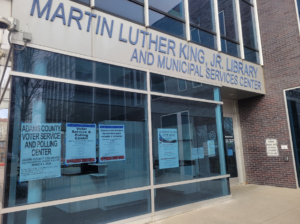
The first co-located VCPS.
The first co-branded 24/7 ballot drop box was installed in Glendale, a “donut hole” of Arapahoe County surrounded by Denver. Six additional co-branded ballot drop boxes have been installed since then. Ballots are delivered to the respective counties by a bipartisan pair of citizen judges from the host county, and ballots for distant counties are sent overnight.
Given that Colorado is the home of the original vote centers, the next logical step was for co-located VSPCs, which ensures voters who unknowingly are in the neighboring county can still easily cast their votes.
“People don’t care which county their closest grocery store is in; they just want to get what they need and get back home. Our experience with voters is the same—they just want to vote their full ballot, regardless of which county their closest VSPC is in,” said Arapahoe County Deputy Director of Elections Bill Mast.
The first VSPC where counties partnered is located at the convergence of all three counties. The Martin Luther King, Jr. library situated within Arapahoe County, is only 250 feet from Adams County and just under a mile from Denver. Further, it is directly on a main transit line.
“I actually grew up in that area, going to school not far from the VSPC,” said Arapahoe County Clerk and Recorder Joan Lopez. “My mother would have to take the bus in order to cast her ballot in the proper precinct, and it sure would have been nice to have a place closer to home for her to vote.”
Lopez said that voters have shared that they appreciate the convenience and ease of access that comes with the shared centers. They appreciate being able to vote their full ballot that contains all their special district and local contests, instead of a statewide ballot.
And it’s not just voters who have appreciated the shared VSPCs. Election workers have enjoyed the experience as well.
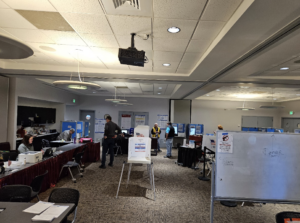
A look inside a co-located VSPC.
“Denver voters have overwhelmingly appreciated having a vote center shared between counties. Many have noted that it gives more accessibility for people living in border communities to vote,” said Mikayla Ortega, spokesperson for Denver Elections. “Additionally, while the endeavor was initially novel, our election workers said they appreciate getting to see how other jurisdictions work through their processes and procedures while working together to make the center a success.”
Arapahoe County has hosted a VSPC in the MLK branch library since 2019, with Adams joining in 2022, and Denver in 2023. Despite differing jurisdictions, this traditionally underserved area benefits from the location, enhancing election equity outreach across all three counties.
“As we developed plans for this VSPC, the minimal pushback we received centered around whether turnout size would be large enough to justify hosting the shared site. The actual turnout at the facility quickly assuaged those concerns,” Arapahoe’s Mast said.
In addition to the original site, Adams County now hosts Arapahoe at a location in the east-end of the counties (Bennett) and Denver is hosting Arapahoe near three small “donut holes” within Denver.
“Over about the past decade we’ve grown our cross-county partnerships to seven shared drop boxes and three shared voter service and polling centers, in both rural and urban areas,” Mast said. “There seems to always be something one partner can offer the other, and you can tailor partnerships to meet each other’s needs.”
Denver County’s Ortega said that the experience has give the elections office confidence in working with other jurisdictions and that the success of the shared sites is a testament to the county’s commitment to equity and access to all eligible voters in our jurisdictions.
“We want to encourage other offices to be open to working together across jurisdictional boundaries to increase access for voters,” Ortega said. “This collaboration and partnership is valuable for the office and voters, and shows that we are better and stronger when we work together.”
(A Professional Practice Paper on the joint vote centers received a People’s Choice Award at the Election Center’s 2024 Annual Conference and was highlighted during the February 2025 Special Workshop. In the coming months, electionline will be featuring more award-winning professional practices.)
electionline Daily News Email
 What’s the best part of waking up? electionline Daily News in your inbox of course so be sure to sign up for your daily dose.
What’s the best part of waking up? electionline Daily News in your inbox of course so be sure to sign up for your daily dose.
Each morning you’ll receive the top headlines of the day, plus a listing of states featured in that day’s news round up.
To sign up, simply visit our site and provide us with your email and you’ll begin receiving the news in your inbox each morning.
We Google so you don’t have to!
Election News This Week
 Federal Updates: This week, President Donald Trump signed an elections-related presidential memoranda. In the memoranda, he revoked the security clearance of former CISA Director Christphoher Krebs and ordered a federal investigation into Krebbs as well as Miles Taylor, the former chief of staff at the Department of Homeland Security during Trump’s first term. White House staff secretary Will Scharf, when handing the order to Trump to sign, said it addressed Krebs’ access to government, existing clearances he might have, and instructed the Justice Department and “other aspects of your government to investigate some of the malign acts that he participated in while he was still head of CISA.” During the signing ceremony, although Trump appointed him, the president said he really didn’t know him. “I don’t know that I met him. I’m sure I met him, but I didn’t know him. And he came out right after the election, which was a rigged election, badly rigged election. We did phenomenally in that election,” Trump said according to USA Today. Trump went on to say 2020 was “a very corrupt election,” an allegation disproven by numerous investigations. In reference to Krebs, Trump added, “And we’re going to find out about this guy too, because this guy’s a wise guy. He said this is the most secure election in the history of our country. No, this was a disaster.” Krebs declined to comment. Taylor said on X that he wasn’t surprised by Trump’s actions. “I said this would happen,” Taylor wrote. “Dissent isn’t unlawful. It certainly isn’t treasonous. America is headed down a dark path.”
Federal Updates: This week, President Donald Trump signed an elections-related presidential memoranda. In the memoranda, he revoked the security clearance of former CISA Director Christphoher Krebs and ordered a federal investigation into Krebbs as well as Miles Taylor, the former chief of staff at the Department of Homeland Security during Trump’s first term. White House staff secretary Will Scharf, when handing the order to Trump to sign, said it addressed Krebs’ access to government, existing clearances he might have, and instructed the Justice Department and “other aspects of your government to investigate some of the malign acts that he participated in while he was still head of CISA.” During the signing ceremony, although Trump appointed him, the president said he really didn’t know him. “I don’t know that I met him. I’m sure I met him, but I didn’t know him. And he came out right after the election, which was a rigged election, badly rigged election. We did phenomenally in that election,” Trump said according to USA Today. Trump went on to say 2020 was “a very corrupt election,” an allegation disproven by numerous investigations. In reference to Krebs, Trump added, “And we’re going to find out about this guy too, because this guy’s a wise guy. He said this is the most secure election in the history of our country. No, this was a disaster.” Krebs declined to comment. Taylor said on X that he wasn’t surprised by Trump’s actions. “I said this would happen,” Taylor wrote. “Dissent isn’t unlawful. It certainly isn’t treasonous. America is headed down a dark path.”
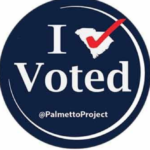 Youth Vote: The South Carolina Department of Motor Vehicles has fixed a glitch in its system that automatically disqualified 17-year-olds from registering to vote, ending a legal fight with the state American Civil Liberties Union, the civil rights group announced this week. Under state law, teenagers who will turn 18 by Election Day can register to vote up to 13 months in advance. One way of doing so would be for teens to check a box while applying for a driver’s license saying they want to register. But the state DMV’s system was set up to filter out applicants who weren’t already 18 when they clicked the button, regardless of whether or not they would be old enough to vote by the election. The system did not forward the information of more than 17,000 teenagers to the State Election Commission who would have been eligible to vote by Election Day but didn’t tell them that, according to the state ACLU. Nearly 1,900 of those teenagers didn’t register any other way, meaning they were out of luck when it came time to vote in November, attorneys for the DMV said previously. The issue prompted a lawsuit from the ACLU, which unsuccessfully asked a Richland County judge in October to add those voters to the rolls. The group dropped the case in December. But in a March 26 letter, an ACLU attorney threatened to file another lawsuit in federal court arguing the DMV had violated a 1993 federal law requiring the agency help people register to vote. By that point, the DMV had already fixed the problem, attorney Erin Baldwin said in a March 27 letter to an ACLU attorney. “Please know that our agency moved as quickly as possible with a very old computer system to achieve the reprogramming necessary to accomplish this goal,” Baldwin wrote in the letter provided to the Gazette. The DMV will collect information from anyone 16 and older who selects that they would like to register to vote, which it will then send to the state Election Commission. The Election Commission can then register voters who will turn 18 by the election and save the information of those not yet eligible to be registered, Baldwin wrote. “The SCDMV will continue to work proactively with the State Election Commission to ensure we meet all requirements established in law for voter registration,” DMV spokesman Mike Fitts said in an email.
Youth Vote: The South Carolina Department of Motor Vehicles has fixed a glitch in its system that automatically disqualified 17-year-olds from registering to vote, ending a legal fight with the state American Civil Liberties Union, the civil rights group announced this week. Under state law, teenagers who will turn 18 by Election Day can register to vote up to 13 months in advance. One way of doing so would be for teens to check a box while applying for a driver’s license saying they want to register. But the state DMV’s system was set up to filter out applicants who weren’t already 18 when they clicked the button, regardless of whether or not they would be old enough to vote by the election. The system did not forward the information of more than 17,000 teenagers to the State Election Commission who would have been eligible to vote by Election Day but didn’t tell them that, according to the state ACLU. Nearly 1,900 of those teenagers didn’t register any other way, meaning they were out of luck when it came time to vote in November, attorneys for the DMV said previously. The issue prompted a lawsuit from the ACLU, which unsuccessfully asked a Richland County judge in October to add those voters to the rolls. The group dropped the case in December. But in a March 26 letter, an ACLU attorney threatened to file another lawsuit in federal court arguing the DMV had violated a 1993 federal law requiring the agency help people register to vote. By that point, the DMV had already fixed the problem, attorney Erin Baldwin said in a March 27 letter to an ACLU attorney. “Please know that our agency moved as quickly as possible with a very old computer system to achieve the reprogramming necessary to accomplish this goal,” Baldwin wrote in the letter provided to the Gazette. The DMV will collect information from anyone 16 and older who selects that they would like to register to vote, which it will then send to the state Election Commission. The Election Commission can then register voters who will turn 18 by the election and save the information of those not yet eligible to be registered, Baldwin wrote. “The SCDMV will continue to work proactively with the State Election Commission to ensure we meet all requirements established in law for voter registration,” DMV spokesman Mike Fitts said in an email.
 All In Winners: This week, the ALL IN Campus Democracy Challenge (ALL IN) announced that 232 college students were selected for the fourth annual Student Voting Honor Roll, and 37 campus leaders, partners and election officials were recognized with Individual Champion Awards. ALL IN’s Student Voting Honor Roll and Individual Champion Awards recognize students, faculty and staff, presidents, athletic coaches, partner organizations and election officials who have succeeded in advancing nonpartisan college student voter registration, education and turnout efforts in their communities. Student Voting Honor Roll honorees span 41 states and represent 39 community colleges, 194 four-year institutions, 44 Hispanic-Serving Institutions and eight Historically Black Colleges and Universities. The full list of student honorees is available here. Campus leaders and election officials were a driving force in getting campus communities registered and to the ballot box in 2024. The full list of Individual Champion Award honorees who helped students make their voices heard in a historic election cycle is available here. “Helping college students become engaged participants in our democracy is a community effort, and today’s honorees all played an important role in ensuring students made their voices heard during the 2024 election,” said Jen Domagal-Goldman, Executive Director of the ALL IN Campus Democracy Challenge. “With 100,000 local elections happening across the country in 2025, ALL IN campus leaders and students continue to ensure that every eligible student has the information they need to cast their ballot. The Student Voting Honor Roll and Individual Champion Award-winners recognized today lead by example, helping students make nonpartisan voter participation a lifelong habit.”
All In Winners: This week, the ALL IN Campus Democracy Challenge (ALL IN) announced that 232 college students were selected for the fourth annual Student Voting Honor Roll, and 37 campus leaders, partners and election officials were recognized with Individual Champion Awards. ALL IN’s Student Voting Honor Roll and Individual Champion Awards recognize students, faculty and staff, presidents, athletic coaches, partner organizations and election officials who have succeeded in advancing nonpartisan college student voter registration, education and turnout efforts in their communities. Student Voting Honor Roll honorees span 41 states and represent 39 community colleges, 194 four-year institutions, 44 Hispanic-Serving Institutions and eight Historically Black Colleges and Universities. The full list of student honorees is available here. Campus leaders and election officials were a driving force in getting campus communities registered and to the ballot box in 2024. The full list of Individual Champion Award honorees who helped students make their voices heard in a historic election cycle is available here. “Helping college students become engaged participants in our democracy is a community effort, and today’s honorees all played an important role in ensuring students made their voices heard during the 2024 election,” said Jen Domagal-Goldman, Executive Director of the ALL IN Campus Democracy Challenge. “With 100,000 local elections happening across the country in 2025, ALL IN campus leaders and students continue to ensure that every eligible student has the information they need to cast their ballot. The Student Voting Honor Roll and Individual Champion Award-winners recognized today lead by example, helping students make nonpartisan voter participation a lifelong habit.”
Personnel News: Jasmine Pernicano is the new Goodyear, Arizona city clerk. Rep. Pat Proctor (R) announced his 2026 candidacy for Kansas secretary of state. Virginia Wasserberg has been appointed to the Pasquotank County, North Carolina Board of Elections. Former Franklin County, Missouri Clerk Jane Luechtefeld was recently recognized with a proclamation for her 30 years of service. Lincoln County, Montana Elections Administrator Melanie Howell has been placed on paid administrative leave. Marty Jacoby has joined the DeKalb County, Tennessee election commission. Colorado Secretary of State Jena Griswold has announced her candidacy for attorney general. Adriana Carpio-Solis is the new Casa Grande, Arizona city clerk. Joe Lemley has stepped down as the Greene County, Pennsylvania elections director. Chad Bettis has been hired by the Columbiana County, Ohio board of elections. Jim Adkins has been appointed the new Republican voting machine technician for Williamson County, Tennessee.
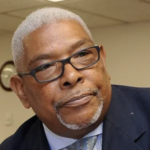 In Memoriam: Hours after announcing his retirement after 18 years as the director of elections for the City of Baltimore, Armstead Jones died. He was 71. “Armstead Jones, Sr. was an institution himself. He had just completed 30 years of service to the Board of Elections, nearly 18 of them as chair, overseeing countless fair and free elections. In recent years, as poll workers across our country were under attack, Mr. Jones stood cool, calm and collected on behalf of all Baltimoreans and our right to vote,” Baltimore Mayor Brandon Scott said. “The Board of Elections today is a credit to his work to recruit and train the very best—and his legacy will forever live on in Baltimore politics.” Jones entered his career in elections in 1995 as a board member. He became president of the Baltimore City Board of Elections in 2003, then its director. Jones oversaw city elections through countless changes, including a shift in the city election calendar and more recently the move to widespread voting by mail amid the pandemic, a shift that challenged election directors across the state. Jones was on leave when he announced his retirement on Friday and was expected to officially retire from the position effective May 1. In recent years, Jones stepped away from the role several times because of health challenges, including being on leave for the 2024 primary preparations and being hospitalized during the 2022 gubernatorial election. “His contributions to the growth, knowledge and development of this staff and new board members will sustain many of us as we move forward in this progress,” Scherod Barnes, President of the Baltimore City Board of Elections, said.
In Memoriam: Hours after announcing his retirement after 18 years as the director of elections for the City of Baltimore, Armstead Jones died. He was 71. “Armstead Jones, Sr. was an institution himself. He had just completed 30 years of service to the Board of Elections, nearly 18 of them as chair, overseeing countless fair and free elections. In recent years, as poll workers across our country were under attack, Mr. Jones stood cool, calm and collected on behalf of all Baltimoreans and our right to vote,” Baltimore Mayor Brandon Scott said. “The Board of Elections today is a credit to his work to recruit and train the very best—and his legacy will forever live on in Baltimore politics.” Jones entered his career in elections in 1995 as a board member. He became president of the Baltimore City Board of Elections in 2003, then its director. Jones oversaw city elections through countless changes, including a shift in the city election calendar and more recently the move to widespread voting by mail amid the pandemic, a shift that challenged election directors across the state. Jones was on leave when he announced his retirement on Friday and was expected to officially retire from the position effective May 1. In recent years, Jones stepped away from the role several times because of health challenges, including being on leave for the 2024 primary preparations and being hospitalized during the 2022 gubernatorial election. “His contributions to the growth, knowledge and development of this staff and new board members will sustain many of us as we move forward in this progress,” Scherod Barnes, President of the Baltimore City Board of Elections, said.
New Research and Resources
 Youth on Democracy: CIRCLE and Protect Democracy have released a major new report on young people’s attitudes toward democracy in the United States. The research, based on a nationally representative poll of young people conducted immediately after the 2024 election, identifies major trends about young people’s views of our system of government. The organizations found that, by and large, the majority of young people support the basic principles and practices of democracy, but they are often deeply disenchanted with the democracy they experience today. Using advanced statistical analyses they reveal three distinct ways young people are approaching democracy: passive appreciation, dismissive disenchantment, and hostile dissatisfaction. The report breaks down what’s unique about each group and provides insights that can inform efforts to engage them.
Youth on Democracy: CIRCLE and Protect Democracy have released a major new report on young people’s attitudes toward democracy in the United States. The research, based on a nationally representative poll of young people conducted immediately after the 2024 election, identifies major trends about young people’s views of our system of government. The organizations found that, by and large, the majority of young people support the basic principles and practices of democracy, but they are often deeply disenchanted with the democracy they experience today. Using advanced statistical analyses they reveal three distinct ways young people are approaching democracy: passive appreciation, dismissive disenchantment, and hostile dissatisfaction. The report breaks down what’s unique about each group and provides insights that can inform efforts to engage them.
 Voter ID Laws: MAP (Movement Advancement Project) recently released the third installment in a new series of policy briefs focused on educating communities about emerging trends in election and voting-related legislation. Voter ID laws have been a central issue in election and voting policy for over two decades and continue to be a focus for policymakers today. These laws require that voters present specific forms of identification when casting their ballot in person. Voter ID requirements differ significantly across states, ranging from strict photo ID mandates to more flexible alternatives which allow voters to prove their identities in a variety of ways and provide fail-safes for those who may not possess the necessary documents. In the majority of states, voters show some form of identification when casting their ballot in person. States that do not request or require a form of ID typically ask for the voter’s signature or other identifying information to confirm the voter’s eligibility. As of April 2, a total of 16 states require some form of identification to vote, with 12 of those states specifically requiring a photo ID. Voter ID laws can be distinguished through four main categories: strict versus non-strict, and photo versus non-photo. Prior to 2005, no state had enacted a strict photo ID law, but now, nearly 25% of eligible voters live in states with strict photo ID laws. MAP’s latest brief details this relatively recent history of voter ID laws in the U.S. and how the motivation for these policies can be placed in the larger context of voter suppression in America that goes back much further. This brief also outlines the impacts and harms of voter ID laws on specific communities, including:
Voter ID Laws: MAP (Movement Advancement Project) recently released the third installment in a new series of policy briefs focused on educating communities about emerging trends in election and voting-related legislation. Voter ID laws have been a central issue in election and voting policy for over two decades and continue to be a focus for policymakers today. These laws require that voters present specific forms of identification when casting their ballot in person. Voter ID requirements differ significantly across states, ranging from strict photo ID mandates to more flexible alternatives which allow voters to prove their identities in a variety of ways and provide fail-safes for those who may not possess the necessary documents. In the majority of states, voters show some form of identification when casting their ballot in person. States that do not request or require a form of ID typically ask for the voter’s signature or other identifying information to confirm the voter’s eligibility. As of April 2, a total of 16 states require some form of identification to vote, with 12 of those states specifically requiring a photo ID. Voter ID laws can be distinguished through four main categories: strict versus non-strict, and photo versus non-photo. Prior to 2005, no state had enacted a strict photo ID law, but now, nearly 25% of eligible voters live in states with strict photo ID laws. MAP’s latest brief details this relatively recent history of voter ID laws in the U.S. and how the motivation for these policies can be placed in the larger context of voter suppression in America that goes back much further. This brief also outlines the impacts and harms of voter ID laws on specific communities, including:
- Voters of Color: Black, Hispanic, and Native American voters are less likely to possess government issued IDs, making it harder for them to vote.
- Transgender Voters: Nearly half of transgender voters in states with voter ID laws lack an ID that accurately reflects their name and/or gender identity.
- Low-Income Voters: Due to structural obstacles, many low-income individuals lack the time, money, or transportation needed to obtain an ID.
- Elderly & Rural Voters: Senior citizens and rural residents may struggle to access offices that issue IDs, which are often located far from their homes.
Students & Young Voters: Young voters are less likely to possess IDs such as driver’s licenses. In addition, a growing number of states have explicitly banned the use of student IDs to satisfy voter ID requirements.
Ballot Measures, Legislation & Rulemaking
 Arkansas: Lawmakers have advanced another bill changing the state’s direct democracy process. Members of a Senate committee advanced House Bill 1713, which requires all titles of citizen-led ballot initiatives and constitutional amendments to be written at or below an eighth-grade reading level. The bill’s Senate co-sponsor, Sen. Mark Johnson, R-Little Rock, said it’s an effort to make the process more accessible to voters. The bill would only apply to citizen-led measures, not proposals referred to the ballot by lawmakers. Kristin Stuart spoke against the bill in Thursday’s meeting of the Senate State Agencies and Governmental Affairs committee, saying some of the simplest ballot titles wouldn’t pass the test set out by the bill. HB1713 would compel the attorney general to reject ballot titles that are written beyond an eighth-grade level as determined by the Flesch-Kincaid Grade Level Formula, which was developed for the U.S. Navy in the mid-1970s. The test is a mathematical formula which takes into consideration the total words, sentences and syllables in a text to determine at which grade level it’s written. The bill passed committee on a voice vote and now heads to the full Senate for consideration.
Arkansas: Lawmakers have advanced another bill changing the state’s direct democracy process. Members of a Senate committee advanced House Bill 1713, which requires all titles of citizen-led ballot initiatives and constitutional amendments to be written at or below an eighth-grade reading level. The bill’s Senate co-sponsor, Sen. Mark Johnson, R-Little Rock, said it’s an effort to make the process more accessible to voters. The bill would only apply to citizen-led measures, not proposals referred to the ballot by lawmakers. Kristin Stuart spoke against the bill in Thursday’s meeting of the Senate State Agencies and Governmental Affairs committee, saying some of the simplest ballot titles wouldn’t pass the test set out by the bill. HB1713 would compel the attorney general to reject ballot titles that are written beyond an eighth-grade level as determined by the Flesch-Kincaid Grade Level Formula, which was developed for the U.S. Navy in the mid-1970s. The test is a mathematical formula which takes into consideration the total words, sentences and syllables in a text to determine at which grade level it’s written. The bill passed committee on a voice vote and now heads to the full Senate for consideration.
A state House committee narrowly voted down a measure that would have guaranteed early voting locations in all Arkansas cities of at least 15,000 people. Presenting House Bill 1878 to the House State Agencies Committee a little after 10 p.m. on April 7, Rep. Jessie McGruder (D-Marion) said the bill “just ensures that cities that have a population above 15,000 have an early voting location within that city.” He added that, currently, all Arkansas cities of 10,000 or more residents have at least one early voting location, so this bill does not require county election commissioners to do anything they are not already doing. HB1878 is a response to efforts to prevent early voting in West Memphis last year, McGruder said. Republicans on the Crittenden County Board of Election Commissioners could not unanimously agree on an early voting location in West Memphis, so board chairman Frank Barton III declared there would be no early voting in the city. Voters sued the county and the commissioners, arguing that an early voting location was required under state law because West Memphis had early voting in 2022. The Arkansas Supreme Court ultimately ruled that an early voting location was required in the city under state law. In response, as part of their general attack on access to voting this session, Republican legislators introduced legislation that would allow a future board of election commissioners to cancel early voting in West Memphis or anywhere else they might choose.
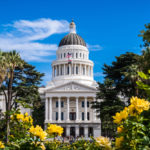 California: A bill looking to impose voter ID and other requirements on Golden State elections drew a strong rebuke this week from state Democrats. Assembly Bill 25 — introduced by Assemblymember Carl DeMaio, a San Diego Republican — led to accusations of flawed elections and “soft bigotry” by GOP members, with claims that Democrats believed minorities weren’t smart enough to get an ID as a reason to not require them at the polls. Democrats countered with arguments that DeMaio relied on a partisan report when making his points and that the state’s elections already are secure. “This is something Democrats and Republicans should see as a democracy issue, not a partisan issue,” DeMaio said. DeMaio presented his bill before the Assembly Elections Committee, which voted it down.
California: A bill looking to impose voter ID and other requirements on Golden State elections drew a strong rebuke this week from state Democrats. Assembly Bill 25 — introduced by Assemblymember Carl DeMaio, a San Diego Republican — led to accusations of flawed elections and “soft bigotry” by GOP members, with claims that Democrats believed minorities weren’t smart enough to get an ID as a reason to not require them at the polls. Democrats countered with arguments that DeMaio relied on a partisan report when making his points and that the state’s elections already are secure. “This is something Democrats and Republicans should see as a democracy issue, not a partisan issue,” DeMaio said. DeMaio presented his bill before the Assembly Elections Committee, which voted it down.
The committee also voted down another Republican bill — Assembly Bill 1214, by Assemblymember Joe Patterson, of Rocklin. However, it did grant Patterson’s request for reconsideration, meaning it could return for another vote at some point. The bill would have reduced the number of days elections officials have to certify the vote, to 21 from 30. Also, officials would have to count at least 25% of the vote seven days after an election, and 67% of it by 14 days after.
 California Ballot Measure: Reform California, a grassroots conservative group, is leading the effort for a proposed 2026 ballot initiative that would require Californians to show their ID in order to vote. If successful, voters would also need to verify they’re a U.S. citizen when they register. State law requires voters to provide an ID or driver’s license number and the last four digits of their social security. Essayli and other Republicans don’t think the current system is strong enough to prevent voter fraud. Democrats like Assemblymember Marc Berman, who sits on the elections committee, defended California’s election process. “I’m proud of the system that we have in California. I’m proud that it’s very accessible, that we make it as easy as possible for people to participate in their democracy, but also how secure it is, and how strong our systems are to make sure that we don’t have election fraud in California,” Berman noted. The statewide effort to get voter ID on next year’s ballot is still in its preliminary phase. Proponents are looking to recruit 10,000 volunteers across California to gather 1 million signatures.
California Ballot Measure: Reform California, a grassroots conservative group, is leading the effort for a proposed 2026 ballot initiative that would require Californians to show their ID in order to vote. If successful, voters would also need to verify they’re a U.S. citizen when they register. State law requires voters to provide an ID or driver’s license number and the last four digits of their social security. Essayli and other Republicans don’t think the current system is strong enough to prevent voter fraud. Democrats like Assemblymember Marc Berman, who sits on the elections committee, defended California’s election process. “I’m proud of the system that we have in California. I’m proud that it’s very accessible, that we make it as easy as possible for people to participate in their democracy, but also how secure it is, and how strong our systems are to make sure that we don’t have election fraud in California,” Berman noted. The statewide effort to get voter ID on next year’s ballot is still in its preliminary phase. Proponents are looking to recruit 10,000 volunteers across California to gather 1 million signatures.
 Santa Cruz County, California: This week, Santa Cruz County, became the first known county to officially come out against President Donald Trump’s elections executive order. The county Board of Supervisors unanimously voted to send a letter to Congress opposing two federal bills, including the SAVE Act, which proposes eliminating online and mail-in registration options. The county worries this could disproportionately impact rural residents, people with disabilities, and others with limited access to transportation. “It’s just another effort to disenfranchise people, to take the voice away from people here in our community,” Santa Cruz Distrct 5 supervisor Monica Martinez said. The county says if the SAVE Act were to pass, many out-of-county and out-of-state UCSC students would face challenges if they do not have the necessary documents when registering to vote.
Santa Cruz County, California: This week, Santa Cruz County, became the first known county to officially come out against President Donald Trump’s elections executive order. The county Board of Supervisors unanimously voted to send a letter to Congress opposing two federal bills, including the SAVE Act, which proposes eliminating online and mail-in registration options. The county worries this could disproportionately impact rural residents, people with disabilities, and others with limited access to transportation. “It’s just another effort to disenfranchise people, to take the voice away from people here in our community,” Santa Cruz Distrct 5 supervisor Monica Martinez said. The county says if the SAVE Act were to pass, many out-of-county and out-of-state UCSC students would face challenges if they do not have the necessary documents when registering to vote.
 Delaware: The House passed legislation that would consolidate the state and presidential primary elections to the same date – in April. Currently Delaware’s presidential primary is held in April – but the primary for statewide and local political offices is held in September – which can cause some confusion for voters. House Bill 65, sponsored by Rep. Stephanie T. Bolden and Sen. Nicole Poore, would move the State’s primary elections to April. State lawmakers say having the presidential and state primary elections on the same day would increase voter turnout – and save the state money. The September state primary leaves little time for overseas and military ballots to be received, considered and returned to Delaware in time for the November general election. The measure passed 39 to 1 with 1 absent. The sole vote against the measure came from 14th District Representative Claire Snyder-Hall of Rehoboth Beach. The bill is now awaiting consideration in the Senate Elections & Government Affairs committee.
Delaware: The House passed legislation that would consolidate the state and presidential primary elections to the same date – in April. Currently Delaware’s presidential primary is held in April – but the primary for statewide and local political offices is held in September – which can cause some confusion for voters. House Bill 65, sponsored by Rep. Stephanie T. Bolden and Sen. Nicole Poore, would move the State’s primary elections to April. State lawmakers say having the presidential and state primary elections on the same day would increase voter turnout – and save the state money. The September state primary leaves little time for overseas and military ballots to be received, considered and returned to Delaware in time for the November general election. The measure passed 39 to 1 with 1 absent. The sole vote against the measure came from 14th District Representative Claire Snyder-Hall of Rehoboth Beach. The bill is now awaiting consideration in the Senate Elections & Government Affairs committee.
House Bill 112, sponsored by Representative Bryan Shupe (R), is proposed legislation that would require voters to present a state-issued, photo ID to vote. The bill was introduced on Tuesday, April 8th. Shupe said the proposed bill includes provisions to account for potential cost barriers. According to Shupe, the bill would make the first state ID received free of charge, and subsequent ones after 20 dollars each. Currently, there is a 40-dollar charge to receive a state ID in Delaware. Shupe said the proposed bill will next be discussed in the Delaware Houses’ Elections and Government Affairs Committee. The representative said he expects their next meeting to be sometime this May.
 Florida: The House approved a measure making it more difficult for citizen-led constitutional amendments to get on state ballots. The proposal (HB 1205) underwent several changes, but ultimately critics claim the measure reduces access to democracy, while supporters say it adds guardrails to the citizen petition process. House Bill 1205 would impose new financial and legal restrictions on petition-signature gatherers and the groups that back ballot initiatives. These include shortening the petition submission window from 30 days to 10 days and requiring petition sponsors to pay a million dollars to get their initiatives on the ballot. The measure now awaits a date to be heard in the Senate. Its Senate companion (SB 7016) has one more committee before it can be taken up on the floor.
Florida: The House approved a measure making it more difficult for citizen-led constitutional amendments to get on state ballots. The proposal (HB 1205) underwent several changes, but ultimately critics claim the measure reduces access to democracy, while supporters say it adds guardrails to the citizen petition process. House Bill 1205 would impose new financial and legal restrictions on petition-signature gatherers and the groups that back ballot initiatives. These include shortening the petition submission window from 30 days to 10 days and requiring petition sponsors to pay a million dollars to get their initiatives on the ballot. The measure now awaits a date to be heard in the Senate. Its Senate companion (SB 7016) has one more committee before it can be taken up on the floor.
 Georgia: The House let an elections overhaul bill die last week failing to take a vote on proposals that would have withdrawn the state from a voter registration accuracy organization and banned absentee ballot drop-off the weekend before Election Day. The bill’s defeat marks the first year since Donald Trump’s narrow loss in 2020 that Georgia Republicans haven’t changed state election laws. House leaders never called the bill up for a vote before the General Assembly ended this year’s legislative session. Instead, the House created a study committee to review Georgia’s touchscreen voting equipment, a possible switch to hand-marked paper ballots and voter registration accuracy. “We are going to look at the elections process as a whole here in Georgia, to craft a more thoughtful, meaningful piece of elections legislation to bring back to the 2026 session,” said state Rep. Tim Fleming, a Republican from Covington and the sponsor of the bill. “I’m disappointed we didn’t get House Bill 397 across the finish line.” Under the bill, Georgia would have become the 10th Republican-led state to quit a 24-state organization that aims to identify outdated voter registrations, the Electronic Registration Information Center. Although the group flagged ineligible voters who have moved away, it has become a target of conservatives who said it wasn’t effective enough. The legislation, which also would have prohibited dropping off ballots, came after Republicans objected to Fulton County’s decision to open election offices the weekend before last year’s election, collecting 307 ballots in-person after it was too late to put them in the mail. The bill also would have empowered the State Election Board, whose Republican majority attempted to pass a series of election rule changes last year before a judge ruled the board exceeded its authority.
Georgia: The House let an elections overhaul bill die last week failing to take a vote on proposals that would have withdrawn the state from a voter registration accuracy organization and banned absentee ballot drop-off the weekend before Election Day. The bill’s defeat marks the first year since Donald Trump’s narrow loss in 2020 that Georgia Republicans haven’t changed state election laws. House leaders never called the bill up for a vote before the General Assembly ended this year’s legislative session. Instead, the House created a study committee to review Georgia’s touchscreen voting equipment, a possible switch to hand-marked paper ballots and voter registration accuracy. “We are going to look at the elections process as a whole here in Georgia, to craft a more thoughtful, meaningful piece of elections legislation to bring back to the 2026 session,” said state Rep. Tim Fleming, a Republican from Covington and the sponsor of the bill. “I’m disappointed we didn’t get House Bill 397 across the finish line.” Under the bill, Georgia would have become the 10th Republican-led state to quit a 24-state organization that aims to identify outdated voter registrations, the Electronic Registration Information Center. Although the group flagged ineligible voters who have moved away, it has become a target of conservatives who said it wasn’t effective enough. The legislation, which also would have prohibited dropping off ballots, came after Republicans objected to Fulton County’s decision to open election offices the weekend before last year’s election, collecting 307 ballots in-person after it was too late to put them in the mail. The bill also would have empowered the State Election Board, whose Republican majority attempted to pass a series of election rule changes last year before a judge ruled the board exceeded its authority.
 Indiana: According to the Indiana Chronicle, 28 lines instructing Indiana Secretary of State Diego Morales to analyze vote center and municipal election year changes ensnarled the Senate for almost 40 minutes this week — but, after a 35-13 vote, the bill heads to the Gov. Mike Braun’s desk. “In the amount of time that we spent debating it, I could have read it word-for-word about 20 times. I’m just flabbergasted,” said Sen. Mike Gaskill of the bipartisan pushback to House Bill 1633. Gaskill, R-Pendleton, was the legislation’s sponsor. It would direct Morales to estimate any cost savings reaped if Indiana were to require that all counties move from traditional precinct-based voting to a vote center model, which allows voters to cast ballots at any location within their county of residence on Election Day. He’d do the same for municipal election changes, comparing the current schedule — odd-numbered years before presidential elections — to even-numbered presidential and midterm years. Morales would also have to study potential impacts on voter turnout, conduct at least one public meeting in each of the three specified regions and report the results to lawmakers by November. House Bill 1633 goes into effect upon passage.
Indiana: According to the Indiana Chronicle, 28 lines instructing Indiana Secretary of State Diego Morales to analyze vote center and municipal election year changes ensnarled the Senate for almost 40 minutes this week — but, after a 35-13 vote, the bill heads to the Gov. Mike Braun’s desk. “In the amount of time that we spent debating it, I could have read it word-for-word about 20 times. I’m just flabbergasted,” said Sen. Mike Gaskill of the bipartisan pushback to House Bill 1633. Gaskill, R-Pendleton, was the legislation’s sponsor. It would direct Morales to estimate any cost savings reaped if Indiana were to require that all counties move from traditional precinct-based voting to a vote center model, which allows voters to cast ballots at any location within their county of residence on Election Day. He’d do the same for municipal election changes, comparing the current schedule — odd-numbered years before presidential elections — to even-numbered presidential and midterm years. Morales would also have to study potential impacts on voter turnout, conduct at least one public meeting in each of the three specified regions and report the results to lawmakers by November. House Bill 1633 goes into effect upon passage.
The chamber additionally concurred with House edits to Senate bills. Sen. Blake Doriot, R-Goshen, reported two sets of changes to his Senate Bill 10. The legislation would no longer allow students at Indiana’s public colleges and universities to use their institutional IDs as proof of identity at the polls. One Republican-authored amendment altered voter list maintenance and data-sharing language — requiring county voter registration offices to perform voter list maintenance within just 48 hours of receiving certain information — while a Democratic one added consular reports of births abroad to a list of documents proving U.S. citizenship. Democrats maintained strong opposition to the measure, which goes to the governor on a 39-9 vote.
 Iowa: Senators sent legislation on Iowa’s elections to Gov. Kim Reynolds’ desk that included provisions on verifying Iowa voters’ citizenship status. House File 954, passed 32-15, was a bill proposed by Iowa Secretary of State Paul Pate that would allow the Secretary of State’s office to contract with federal and state agencies, and with private entities, for voter roll verification and maintenance. The bill also laid out steps for setting a voter’s registration status as “unconfirmed” in cases where the state registrar or a county commissioner “has received information from a reliable source indicating that the registered voter is not qualified.” A “unconfirmed” voter’s status would be changed to “active” after they provide proof that they are qualified to vote under the legislation. The bill also allows for a voter to be challenged at the polls over their citizenship status. A challenged voter is allowed to present precinct election officials evidence or facts to prove they are qualified to vote. If the challenge is not withdrawn after this procedure, the voter would cast a provisional ballot. The bill also included a ban on ranked choice voting. Sen. Sarah Trone Garriott, D-West Des Moines, introduced an amendment, which failed, to allow local governments to conduct elections using ranked choice voting. The voting method, also known as instant runoff voting, has voters order candidates on a ballot from their first to last choice, with a candidate winning if they receive the majority of first-choice voters. If there is not a clear winner, the candidate with the least votes is eliminated, and voters who chose that candidate as their first choice have their votes redistributed to their second choice — a process which repeats until one candidate wins the majority of votes.
Iowa: Senators sent legislation on Iowa’s elections to Gov. Kim Reynolds’ desk that included provisions on verifying Iowa voters’ citizenship status. House File 954, passed 32-15, was a bill proposed by Iowa Secretary of State Paul Pate that would allow the Secretary of State’s office to contract with federal and state agencies, and with private entities, for voter roll verification and maintenance. The bill also laid out steps for setting a voter’s registration status as “unconfirmed” in cases where the state registrar or a county commissioner “has received information from a reliable source indicating that the registered voter is not qualified.” A “unconfirmed” voter’s status would be changed to “active” after they provide proof that they are qualified to vote under the legislation. The bill also allows for a voter to be challenged at the polls over their citizenship status. A challenged voter is allowed to present precinct election officials evidence or facts to prove they are qualified to vote. If the challenge is not withdrawn after this procedure, the voter would cast a provisional ballot. The bill also included a ban on ranked choice voting. Sen. Sarah Trone Garriott, D-West Des Moines, introduced an amendment, which failed, to allow local governments to conduct elections using ranked choice voting. The voting method, also known as instant runoff voting, has voters order candidates on a ballot from their first to last choice, with a candidate winning if they receive the majority of first-choice voters. If there is not a clear winner, the candidate with the least votes is eliminated, and voters who chose that candidate as their first choice have their votes redistributed to their second choice — a process which repeats until one candidate wins the majority of votes.
 Mississippi: Mississippi will remain one of only three states without no-excuse early voting or no-excuse absentee voting. Senate leaders, on the last day of their regular 2025 session, decided not to send a bill to Gov. Tate Reeves that would have expanded pre-Election Day voting options. The governor has been vocally opposed to early voting in Mississippi, and would likely have vetoed the measure. The House and Senate this week overwhelmingly voted for legislation that established a watered-down version of early voting. The proposal would have required voters to go to a circuit clerk’s office and verify their identity with a photo ID. The proposal also listed broad excuses that would have allowed many voters an opportunity to cast early ballots. The measure passed the House unanimously and the Senate approved it 42-7. However, Sen. Jeff Tate, a Republican from Meridian who strongly opposes early voting, held the bill on a procedural motion. Senate Elections Chairman Jeremy England chose not to dispose of Tate’s motion on Thursday morning, the last day the Senate was in session. This killed the bill and prevented it from going to the governor.
Mississippi: Mississippi will remain one of only three states without no-excuse early voting or no-excuse absentee voting. Senate leaders, on the last day of their regular 2025 session, decided not to send a bill to Gov. Tate Reeves that would have expanded pre-Election Day voting options. The governor has been vocally opposed to early voting in Mississippi, and would likely have vetoed the measure. The House and Senate this week overwhelmingly voted for legislation that established a watered-down version of early voting. The proposal would have required voters to go to a circuit clerk’s office and verify their identity with a photo ID. The proposal also listed broad excuses that would have allowed many voters an opportunity to cast early ballots. The measure passed the House unanimously and the Senate approved it 42-7. However, Sen. Jeff Tate, a Republican from Meridian who strongly opposes early voting, held the bill on a procedural motion. Senate Elections Chairman Jeremy England chose not to dispose of Tate’s motion on Thursday morning, the last day the Senate was in session. This killed the bill and prevented it from going to the governor.
 North Dakota: A bill to ban North Dakota communities from using ranked-choice and approval voting methods in local elections has sailed through the state Legislature, an action that targets a voting method used in Fargo. If enacted, House Bill 1297 would prohibit cities, counties and any political subdivision statewide from using either voting system to elect or nominate a candidate to any local, state or federal office. Bill sponsor Rep. Ben Koppelman, R-West Fargo, said in a previous House Government and Veterans Affairs Committee hearing that he revived the bill because voters want “better” elected officials with more conservative values, especially when it comes to state funding. During debate, Sen. Ryan Braunberger, D-Fargo, attempted to alter the bill through a floor amendment that would have grandfathered in Fargo’s approval voting process. The amendment failed. “I agree that we need to make sure that we have elections that are fair and balanced,” Braunberger said. “But I also believe that we should listen to our citizens and our localities.” As of April 8, both chambers have approved the legislation with zero alterations — the Senate with a 38-8 vote and the House with a 75-16 vote. Gov. Kelly Armstrong will now decide whether to put the rule into law.
North Dakota: A bill to ban North Dakota communities from using ranked-choice and approval voting methods in local elections has sailed through the state Legislature, an action that targets a voting method used in Fargo. If enacted, House Bill 1297 would prohibit cities, counties and any political subdivision statewide from using either voting system to elect or nominate a candidate to any local, state or federal office. Bill sponsor Rep. Ben Koppelman, R-West Fargo, said in a previous House Government and Veterans Affairs Committee hearing that he revived the bill because voters want “better” elected officials with more conservative values, especially when it comes to state funding. During debate, Sen. Ryan Braunberger, D-Fargo, attempted to alter the bill through a floor amendment that would have grandfathered in Fargo’s approval voting process. The amendment failed. “I agree that we need to make sure that we have elections that are fair and balanced,” Braunberger said. “But I also believe that we should listen to our citizens and our localities.” As of April 8, both chambers have approved the legislation with zero alterations — the Senate with a 38-8 vote and the House with a 75-16 vote. Gov. Kelly Armstrong will now decide whether to put the rule into law.
 Oregon: A proposed bill that would require every Oregon county election office to livestream its vote tabulation processes could improve trust in the state’s elections, its proponents say. But officials who’d have to implement the bill, which was introduced by a Republican senator, say it would be costly and logistically difficult. Senate Bill 1054 would require each of Oregon’s 36 county clerks to livestream footage of the rooms in which ballots are counted and from ballot drop sites during election seasons. It would also require those officials to store those recordings for two years. The bill provides no specific requirements for the placement of livestream cameras, besides stating that any video camera could not be placed in a position to reveal personal details on ballots. A few county elections offices currently livestream their vote counting process. During the 2024 election, for example, the Tillamook County Clerk’s office livestreamed footage from several rooms in which ballots were being collected, verified and sorted through vote-tabulation machines. The bill’s sponsor said requiring similar, more expansive recordings from all county clerks would “give people a window into the room to see this process in an open and transparent way.” But election officials say the one-page bill fails to address several key details of implementing such a measure. One primary concern, they say, is that the bill does not allocate any more funding to county clerks, many of whom have previously reported inadequate funding and staffing levels.
Oregon: A proposed bill that would require every Oregon county election office to livestream its vote tabulation processes could improve trust in the state’s elections, its proponents say. But officials who’d have to implement the bill, which was introduced by a Republican senator, say it would be costly and logistically difficult. Senate Bill 1054 would require each of Oregon’s 36 county clerks to livestream footage of the rooms in which ballots are counted and from ballot drop sites during election seasons. It would also require those officials to store those recordings for two years. The bill provides no specific requirements for the placement of livestream cameras, besides stating that any video camera could not be placed in a position to reveal personal details on ballots. A few county elections offices currently livestream their vote counting process. During the 2024 election, for example, the Tillamook County Clerk’s office livestreamed footage from several rooms in which ballots were being collected, verified and sorted through vote-tabulation machines. The bill’s sponsor said requiring similar, more expansive recordings from all county clerks would “give people a window into the room to see this process in an open and transparent way.” But election officials say the one-page bill fails to address several key details of implementing such a measure. One primary concern, they say, is that the bill does not allocate any more funding to county clerks, many of whom have previously reported inadequate funding and staffing levels.
 Pennsylvania: Rep. David Rowe (R-Snyder/Union/Mifflin/Juniata) introduced the Sportsmen Voter Registration Act last week, which will ensure the availability of voter registration applications any time a hunting or fishing license is applied for. Applying for a hunting or fishing license may be the most consistent interaction a sportsman has with state government. Making voter registration applications available when applying for a hunting or fishing license it is an attempt to encourage greater civic participation by this crucial portion of the public. It is estimated that up to 30% of hunters in Pennsylvania are not registered to vote, and this is where Rowe saw a need to raise the voice of Pennsylvania sportsmen.
Pennsylvania: Rep. David Rowe (R-Snyder/Union/Mifflin/Juniata) introduced the Sportsmen Voter Registration Act last week, which will ensure the availability of voter registration applications any time a hunting or fishing license is applied for. Applying for a hunting or fishing license may be the most consistent interaction a sportsman has with state government. Making voter registration applications available when applying for a hunting or fishing license it is an attempt to encourage greater civic participation by this crucial portion of the public. It is estimated that up to 30% of hunters in Pennsylvania are not registered to vote, and this is where Rowe saw a need to raise the voice of Pennsylvania sportsmen.
 Texas: State Rep. Ellen Troxclair of Lakeway filed House Bill 3113, which would require counties opting for hand-counts to use a ballot that is capable of being scanned and tabulated by voting machines using optical scanning technology. The bill comes a year after Gillespie County Republicans hand-counted thousands of primary ballots. If passed, the bill would allow for a faster recount or audit of any hand-counted results. Hand-counts can take days and involve hundreds of people. The bill does not prevent a hand-count or require an audit, she said, but simply makes a faster recount of hand-counted ballots an option.
Texas: State Rep. Ellen Troxclair of Lakeway filed House Bill 3113, which would require counties opting for hand-counts to use a ballot that is capable of being scanned and tabulated by voting machines using optical scanning technology. The bill comes a year after Gillespie County Republicans hand-counted thousands of primary ballots. If passed, the bill would allow for a faster recount or audit of any hand-counted results. Hand-counts can take days and involve hundreds of people. The bill does not prevent a hand-count or require an audit, she said, but simply makes a faster recount of hand-counted ballots an option.
Two bills currently in the legislature would prohibit distributing voter registration applications to people unless they requested them. It’s a direct response to what Bexar County and a few other counties did leading up to the November election. “Certain counties in Texas used taxpayer funds to contract with third party companies to send out unsolicited voter registration cards. This practice raised concerns about proper use of funds and integrity of the voter registration process,” said State Rep. Tom Oliverson of Harris County who authored the House bill. Republicans are concerned contractors won’t be non-partisan and will use county voter data to target democratic voters.
 Vineyard City, Utah: One of the pioneers of Utah’s municipal alternative voting methods pilot program is opting out of the program in its final year. In a special session Thursday, the Vineyard City Council voted not to renew ranked-choice voting in its elections, prior to the pilot program’s end on Jan. 1, 2026. The decision came following a discussion over the effectiveness of the voting method. During the meeting, City Councilwoman Mardi Sifuentes said she recognized the benefit of ranked-choice voting but explained she wanted to move away from the system, citing concerns with the instant runoff and how the redistribution system may not weigh each person’s votes evenly. Mayor Julie Fullmer expressed her support for the program, though she ultimately aligned with the council in a unanimous vote not to renew it. “I think it’s interesting when we’re talking about incumbents and challengers, because ranked-choice voting is an opportunity for (voters) to have to move outside of the name recognition.” she said. “You get to rank your people instead of just voting for one person or two people, whatever the seats are that are open.”
Vineyard City, Utah: One of the pioneers of Utah’s municipal alternative voting methods pilot program is opting out of the program in its final year. In a special session Thursday, the Vineyard City Council voted not to renew ranked-choice voting in its elections, prior to the pilot program’s end on Jan. 1, 2026. The decision came following a discussion over the effectiveness of the voting method. During the meeting, City Councilwoman Mardi Sifuentes said she recognized the benefit of ranked-choice voting but explained she wanted to move away from the system, citing concerns with the instant runoff and how the redistribution system may not weigh each person’s votes evenly. Mayor Julie Fullmer expressed her support for the program, though she ultimately aligned with the council in a unanimous vote not to renew it. “I think it’s interesting when we’re talking about incumbents and challengers, because ranked-choice voting is an opportunity for (voters) to have to move outside of the name recognition.” she said. “You get to rank your people instead of just voting for one person or two people, whatever the seats are that are open.”
 Wisconsin: Under current law, once candidates qualify for the ballot, they can only be removed if they die. But, after two high-profile cases in which candidates were unable to remove their names from the ballot, lawmakers are weighing a change to one of the nation’s strictest withdrawal laws. This week, the Assembly Committee on Campaigns and Elections held a public hearing on the proposal written by Rep. David Steffen, a Republican, to allow candidates for certain statewide, congressional, and legislative offices and independent candidates for president and vice president to withdraw from the ballot any time before the Wisconsin Elections Commission certifies candidates’ names. Calling the current law outdated, Steffen told lawmakers that candidates deserve a straightforward way to remove themselves from consideration before Election Day.
Wisconsin: Under current law, once candidates qualify for the ballot, they can only be removed if they die. But, after two high-profile cases in which candidates were unable to remove their names from the ballot, lawmakers are weighing a change to one of the nation’s strictest withdrawal laws. This week, the Assembly Committee on Campaigns and Elections held a public hearing on the proposal written by Rep. David Steffen, a Republican, to allow candidates for certain statewide, congressional, and legislative offices and independent candidates for president and vice president to withdraw from the ballot any time before the Wisconsin Elections Commission certifies candidates’ names. Calling the current law outdated, Steffen told lawmakers that candidates deserve a straightforward way to remove themselves from consideration before Election Day.
Legal Updates
 Federal Litigation: The attorneys general from states (Arizona, California, Colorado, Connecticut, Delaware, Hawaii, Illinois, Maine, Massachusetts, Maryland, Michigan, Minnesota, Nevada, New Jersey, New Mexico, New York, Rhode Island, Vermont, and Wisconsin) have sued over President Donald Trump’s elections executive order [Oregon and Washington have filed a separate suit.] saying it is an illegal attempt to usurp state control of elections that “would cause imminent and irreparable harm” if the courts don’t intervene. The order “sows confusion and sets the stage for chaos in Plaintiff States’ election systems, together with the threat of disenfranchisement,” the states wrote in the complaint, which was filed in the U.S. District Court of Massachusetts on Thursday. The attorneys general emphasized that Congress has never required proof of citizenship to vote in federal elections and that states have the authority to dictate the deadline for mail ballots. They also say that Trump cannot force states to require proof of voter citizenship, and threatening to withhold funding for not complying with provisions in the order violates the U.S. Constitution’s principles of federalism and separation of powers, and adds requirements on the money that weren’t imposed by Congress. The order also requires states to exclude any mail-in or absentee ballots received after Election Day, and it puts states’ federal funding at risk if election officials don’t comply. Some states count ballots as long as they are postmarked by Election Day or allow voters to correct minor errors on their ballots. Forcing states to change, the suit says, would violate the broad authority the Constitution gives states to set their own election rules. It says they decide the “times, places and manner” of how elections are run. Congress has the power to “make or alter” election regulations, at least for federal office, but the Constitution doesn’t mention any presidential authority over election administration. “We are a democracy — not a monarchy — and this executive order is an authoritarian power grab,” said New York Attorney General Letitia James.
Federal Litigation: The attorneys general from states (Arizona, California, Colorado, Connecticut, Delaware, Hawaii, Illinois, Maine, Massachusetts, Maryland, Michigan, Minnesota, Nevada, New Jersey, New Mexico, New York, Rhode Island, Vermont, and Wisconsin) have sued over President Donald Trump’s elections executive order [Oregon and Washington have filed a separate suit.] saying it is an illegal attempt to usurp state control of elections that “would cause imminent and irreparable harm” if the courts don’t intervene. The order “sows confusion and sets the stage for chaos in Plaintiff States’ election systems, together with the threat of disenfranchisement,” the states wrote in the complaint, which was filed in the U.S. District Court of Massachusetts on Thursday. The attorneys general emphasized that Congress has never required proof of citizenship to vote in federal elections and that states have the authority to dictate the deadline for mail ballots. They also say that Trump cannot force states to require proof of voter citizenship, and threatening to withhold funding for not complying with provisions in the order violates the U.S. Constitution’s principles of federalism and separation of powers, and adds requirements on the money that weren’t imposed by Congress. The order also requires states to exclude any mail-in or absentee ballots received after Election Day, and it puts states’ federal funding at risk if election officials don’t comply. Some states count ballots as long as they are postmarked by Election Day or allow voters to correct minor errors on their ballots. Forcing states to change, the suit says, would violate the broad authority the Constitution gives states to set their own election rules. It says they decide the “times, places and manner” of how elections are run. Congress has the power to “make or alter” election regulations, at least for federal office, but the Constitution doesn’t mention any presidential authority over election administration. “We are a democracy — not a monarchy — and this executive order is an authoritarian power grab,” said New York Attorney General Letitia James.
Delaware Judge Judge Eric M. Davis once again, has found that a conservative news outlet broadcast false and defamatory claims about the role a voting technology company played in the 2020 presidential election. This time, that network is Newsmax, Fox News’ upstart rival, which is fresh off a successful initial public offering. In his opinion, Davis says Dominion “presents clear and convincing evidence” that shows Newsmax broadcast segments with inaccurate information that “would likely cause reasonable viewers to think significantly less favorably about Dominion than if the viewers knew the truth.” He also noted that Newsmax’s “clarification” posted in mid-December 2020 about a lack of evidence of voter fraud showed that Newsmax “acknowledged the falsity” of several lies regarding Dominion and the election. If the lawsuit heads to trial as scheduled later this month, the jury will be asked to decide whether to award damages and how much, and whether the broadcasts were aired with “actual malice,” which means knowledge of falsity or disregard for the truth. This week’s ruling was another win for Dominion from the same judge who presided over a similar defamation lawsuit the voting tech company brought against Fox News.
 Alaska: Ten members of an American Samoan family residing in Whittier, Alaska, have been charged with voter misconduct and perjury, among other charges. Each of the 10 individuals are U.S. nationals who were born in American Samoa, a U.S. territory, but are not U.S. citizens. According to the state, U.S. citizenship is not granted automatically to people born in American Samoa and the Swains Island, which is different from those born in Puerto Rico, the Marianas (Guam and the Northern Mariana Islands), and the U.S. Virgin Islands. In a statement Monday, Alaska Deputy Attorney General John Skidmore said the following: “Everyone who is eligible to vote and properly registered to vote is encouraged to vote. Voting is a right of citizenship. It is how our leaders are selected and how everyday citizens get to influence policy on a local, state, and national level. To be clear, you must be a citizen to vote in Alaska in any election—federal, state, or local.”
Alaska: Ten members of an American Samoan family residing in Whittier, Alaska, have been charged with voter misconduct and perjury, among other charges. Each of the 10 individuals are U.S. nationals who were born in American Samoa, a U.S. territory, but are not U.S. citizens. According to the state, U.S. citizenship is not granted automatically to people born in American Samoa and the Swains Island, which is different from those born in Puerto Rico, the Marianas (Guam and the Northern Mariana Islands), and the U.S. Virgin Islands. In a statement Monday, Alaska Deputy Attorney General John Skidmore said the following: “Everyone who is eligible to vote and properly registered to vote is encouraged to vote. Voting is a right of citizenship. It is how our leaders are selected and how everyday citizens get to influence policy on a local, state, and national level. To be clear, you must be a citizen to vote in Alaska in any election—federal, state, or local.”
 California: Orange County Superior Court Judge Nico Dourbetas denied efforts to prevent Huntington Beach from requiring voters to present a government-issued identification before they cast their ballot. Dourbetas rejected both the bid by California Attorney General Rob Bonta and by Huntington Beach resident Mark Bixby to invalidate the city’s charter amendment that imposed the voter ID requirement because, they argued, it would conflict with state law and burden citizens’ right to vote. “There is no showing that a voter identification requirement compromises the integrity of a municipal election,” Dourbetas said. “Municipal election results do not lack integrity because only residents of a municipality who are eligible to vote participated in the election.” It was the second time the judge rebuffed the efforts to block the politically controversial voter ID requirement. Last year, he dismissed the two lawsuits because the city hadn’t yet implemented any ordinances for its voter ID requirement. In February, the California Courts of Appeal reversed him, saying that his decision that the controversy wasn’t ripe was “problematic” and sent the case back to him to rule on California’s facial challenge, as opposed to an as-applied challenge, that the Huntington Beach voter ID requirement is preempted by state law. “Now that we have a final order from the Orange County Superior Court, we look forward to moving on and appealing the decision,” the attorney general said in a statement. “We remain confident that Measure A will ultimately be struck down.”
California: Orange County Superior Court Judge Nico Dourbetas denied efforts to prevent Huntington Beach from requiring voters to present a government-issued identification before they cast their ballot. Dourbetas rejected both the bid by California Attorney General Rob Bonta and by Huntington Beach resident Mark Bixby to invalidate the city’s charter amendment that imposed the voter ID requirement because, they argued, it would conflict with state law and burden citizens’ right to vote. “There is no showing that a voter identification requirement compromises the integrity of a municipal election,” Dourbetas said. “Municipal election results do not lack integrity because only residents of a municipality who are eligible to vote participated in the election.” It was the second time the judge rebuffed the efforts to block the politically controversial voter ID requirement. Last year, he dismissed the two lawsuits because the city hadn’t yet implemented any ordinances for its voter ID requirement. In February, the California Courts of Appeal reversed him, saying that his decision that the controversy wasn’t ripe was “problematic” and sent the case back to him to rule on California’s facial challenge, as opposed to an as-applied challenge, that the Huntington Beach voter ID requirement is preempted by state law. “Now that we have a final order from the Orange County Superior Court, we look forward to moving on and appealing the decision,” the attorney general said in a statement. “We remain confident that Measure A will ultimately be struck down.”
 Michigan: The Office of Michigan Attorney General Dana Nessel is asking for a special prosecutor to take over her investigation into alleged voter fraud in Hamtramck among several city councilmen, saying that perceptions she is biased against the councilmen, Arabs and Muslims could affect her prosecution. Her office said that Nessel and her department don’t have any ethnic, religious or political prejudices, but are asking for an outside prosecutor to avoid any appearance of bias into the probe of a conspiracy by elected officials to illegally cast ballots they collected from voters and paid money for. Nessel’s office revealed new details about its probe into ballot fraud in 2023 elections in Hamtramck, saying it had asked the FBI to take up the case, but it was rebuffed in December by the U.S. Attorney’s Office of the Eastern District of Michigan, which declined to handle the investigation and prosecution. The investigation targets six people, four of them city councilmen and a former city councilman, according to the petition that Nessel’s office forwarded Friday to the Free Press. Wayne County records reviewed previously by the Free Press showed only two city councilmen were under investigation. It was unclear why the investigation was at a standstill. Hamtramck City Clerk Rana Faraj sent Nessel a letter on March 12 urging her to take action, accusing City Councilman Mohammed Hassan of ballot fraud and acting as if he was untouchable. Faraj expressed concern that more ballot fraud could occur this year, with other council seats up for grabs, along with the mayor’s seat.
Michigan: The Office of Michigan Attorney General Dana Nessel is asking for a special prosecutor to take over her investigation into alleged voter fraud in Hamtramck among several city councilmen, saying that perceptions she is biased against the councilmen, Arabs and Muslims could affect her prosecution. Her office said that Nessel and her department don’t have any ethnic, religious or political prejudices, but are asking for an outside prosecutor to avoid any appearance of bias into the probe of a conspiracy by elected officials to illegally cast ballots they collected from voters and paid money for. Nessel’s office revealed new details about its probe into ballot fraud in 2023 elections in Hamtramck, saying it had asked the FBI to take up the case, but it was rebuffed in December by the U.S. Attorney’s Office of the Eastern District of Michigan, which declined to handle the investigation and prosecution. The investigation targets six people, four of them city councilmen and a former city councilman, according to the petition that Nessel’s office forwarded Friday to the Free Press. Wayne County records reviewed previously by the Free Press showed only two city councilmen were under investigation. It was unclear why the investigation was at a standstill. Hamtramck City Clerk Rana Faraj sent Nessel a letter on March 12 urging her to take action, accusing City Councilman Mohammed Hassan of ballot fraud and acting as if he was untouchable. Faraj expressed concern that more ballot fraud could occur this year, with other council seats up for grabs, along with the mayor’s seat.
 Nevada: The U.S. Ninth Circuit Court of Appeals has dismissed a challenge to a Nevada law to protect election workers, likely ending the effort to decriminalize their harassment. In a unanimous opinion released this week, the three-member panel of judges unanimously dismissed the suit brought by four former poll and ballot counting observers, who were represented in the case by Sigal Chattah, the new interim U.S. attorney for the District of Nevada, the state’s highest federal law enforcement officer. The ruling comes one year after federal Judge Cristina Silva blocked the lawsuit over a lack of standing. Chattah appealed the decision one month later. The Nevada Secretary of State’s Office, which was the defendant in the case, commended the dismissal. “No one should be harassed or intimidated for supporting our democratic process, and this bipartisan law shows the importance of putting people over politics,” the office said in a statement. The lawsuit was filed in 2023 by Republican megadonor Robert Beadles, who has funded legal challenges against Nevada election law and threatened officials in Washoe County, and three other plaintiffs. The Ninth Circuit upheld the district court’s dismissal over a lack of standing. Standing requires the plaintiffs to have an injury — in this case, that they ostensibly will not be able to conduct their election observation activities. But the judges wrote that the plaintiffs did not credibly demonstrate an injury, and that the fear of prosecution they cited — a 2020 tweet from Nevada Attorney General Aaron Ford saying he would prosecute voter intimidation — was irrelevant because the law had not yet been enacted. “Plaintiffs’ vague allegations amount to ‘some day intentions’ to do something to an elections official that might be misinterpreted as intimidating,” the Ninth Circuit panel wrote. “This is not a specific, concrete plan to engage in conduct arguably proscribed by SB 406.”
Nevada: The U.S. Ninth Circuit Court of Appeals has dismissed a challenge to a Nevada law to protect election workers, likely ending the effort to decriminalize their harassment. In a unanimous opinion released this week, the three-member panel of judges unanimously dismissed the suit brought by four former poll and ballot counting observers, who were represented in the case by Sigal Chattah, the new interim U.S. attorney for the District of Nevada, the state’s highest federal law enforcement officer. The ruling comes one year after federal Judge Cristina Silva blocked the lawsuit over a lack of standing. Chattah appealed the decision one month later. The Nevada Secretary of State’s Office, which was the defendant in the case, commended the dismissal. “No one should be harassed or intimidated for supporting our democratic process, and this bipartisan law shows the importance of putting people over politics,” the office said in a statement. The lawsuit was filed in 2023 by Republican megadonor Robert Beadles, who has funded legal challenges against Nevada election law and threatened officials in Washoe County, and three other plaintiffs. The Ninth Circuit upheld the district court’s dismissal over a lack of standing. Standing requires the plaintiffs to have an injury — in this case, that they ostensibly will not be able to conduct their election observation activities. But the judges wrote that the plaintiffs did not credibly demonstrate an injury, and that the fear of prosecution they cited — a 2020 tweet from Nevada Attorney General Aaron Ford saying he would prosecute voter intimidation — was irrelevant because the law had not yet been enacted. “Plaintiffs’ vague allegations amount to ‘some day intentions’ to do something to an elections official that might be misinterpreted as intimidating,” the Ninth Circuit panel wrote. “This is not a specific, concrete plan to engage in conduct arguably proscribed by SB 406.”
 New Hampshire: Frank Gauthier, 65, of Somersworth, has pleaded guilty to one Class B misdemeanor count of disorderly conduct in connection with an incident at the polls on Election Day last November. Gauthier arrived at the polling place after the polls closed at 7 p.m. on Tuesday, Nov. 5, 2024, according to John Formella, the New Hampshire attorney general. When election workers told Gauthier he had arrived too late to vote, he became disorderly and began shouting and making obscene statements, Formella said. He said Gauthier’s disorderly behavior continued after election workers asked him to leave. Gauthier was charged with recklessly creating the risk of a breach of the peace, public inconvenience, annoyance, or alarm at the polling place. As part of a negotiated deal, Gauthier pleaded guilty and was ordered to pay a $500 fine with a $120 penalty assessment. He was also ordered to complete 50 hours of community service, to write apology letters to the Ward 3 moderator and an election volunteer and to have no further contact with either of them for two years.
New Hampshire: Frank Gauthier, 65, of Somersworth, has pleaded guilty to one Class B misdemeanor count of disorderly conduct in connection with an incident at the polls on Election Day last November. Gauthier arrived at the polling place after the polls closed at 7 p.m. on Tuesday, Nov. 5, 2024, according to John Formella, the New Hampshire attorney general. When election workers told Gauthier he had arrived too late to vote, he became disorderly and began shouting and making obscene statements, Formella said. He said Gauthier’s disorderly behavior continued after election workers asked him to leave. Gauthier was charged with recklessly creating the risk of a breach of the peace, public inconvenience, annoyance, or alarm at the polling place. As part of a negotiated deal, Gauthier pleaded guilty and was ordered to pay a $500 fine with a $120 penalty assessment. He was also ordered to complete 50 hours of community service, to write apology letters to the Ward 3 moderator and an election volunteer and to have no further contact with either of them for two years.
 North Carolina: Two Republican state Appeals Court judges on a three-judge panel agreed with their colleague that thousands of votes in his race for a seat on the state Supreme Court were improperly included in vote totals. The 2-1 ruling gives GOP Appeals Court Judge Jefferson Griffin a boost in his effort to unseat incumbent Democratic Supreme Court Justice Allison Riggs. Riggs’ 734-vote lead was reaffirmed by two recounts. In his effort to win, Griffin wants more than 60,000 votes thrown out. He sued the state Board of Elections, claiming that counting those votes is against the law. Republican Appeals Court Judges John Tyson and Fred Gore agreed with Griffin. They wrote that they could order those votes thrown out, but would give most voters the chance to fix deficiencies. They ordered the state Board of Elections to notify voters of problems. Voters will have 15 business days once the Board sends the notices to “cure” deficiencies, either by providing a partial Social Security number or driver’s license number if those numbers are missing on their voter registration forms, or by providing the copy of a photo or a photo ID exemption form if they were military or overseas absentee voters. In a 66-page dissent, Judge Tobias Hampson (D) wrote that voters followed the rules they were given and had every expectation that their votes would count. “Changing the rules by which these lawful voters took part in our electoral process after the election to discard their otherwise valid votes in an attempt to alter the outcome of only one race among many on the ballot is directly counter to law, equity, and the Constitution,” Hampson wrote. Riggs filed an appeal and the state Supreme Court temporarily blocked the order. In his motion, Riggs’ lawyer emphasized the confusion the 15-day deadline would cause. “It is impossible to predict the full scope of confusion that could result from this 15-day cure process if implemented before this Court’s review,” the petition says. “Further, the Court of Appeals’ “cure” remedy will be inadequate to prevent the disenfranchisement of thousands of North Carolina voters. There can be no doubt that tens of thousands of voters—through no fault of their own—will be unable to cure their registrations or ballots in time.” Griffin’s lawsuit is headed to the Supreme Court, where Republicans hold a 5-2 majority. Riggs has recused herself.
North Carolina: Two Republican state Appeals Court judges on a three-judge panel agreed with their colleague that thousands of votes in his race for a seat on the state Supreme Court were improperly included in vote totals. The 2-1 ruling gives GOP Appeals Court Judge Jefferson Griffin a boost in his effort to unseat incumbent Democratic Supreme Court Justice Allison Riggs. Riggs’ 734-vote lead was reaffirmed by two recounts. In his effort to win, Griffin wants more than 60,000 votes thrown out. He sued the state Board of Elections, claiming that counting those votes is against the law. Republican Appeals Court Judges John Tyson and Fred Gore agreed with Griffin. They wrote that they could order those votes thrown out, but would give most voters the chance to fix deficiencies. They ordered the state Board of Elections to notify voters of problems. Voters will have 15 business days once the Board sends the notices to “cure” deficiencies, either by providing a partial Social Security number or driver’s license number if those numbers are missing on their voter registration forms, or by providing the copy of a photo or a photo ID exemption form if they were military or overseas absentee voters. In a 66-page dissent, Judge Tobias Hampson (D) wrote that voters followed the rules they were given and had every expectation that their votes would count. “Changing the rules by which these lawful voters took part in our electoral process after the election to discard their otherwise valid votes in an attempt to alter the outcome of only one race among many on the ballot is directly counter to law, equity, and the Constitution,” Hampson wrote. Riggs filed an appeal and the state Supreme Court temporarily blocked the order. In his motion, Riggs’ lawyer emphasized the confusion the 15-day deadline would cause. “It is impossible to predict the full scope of confusion that could result from this 15-day cure process if implemented before this Court’s review,” the petition says. “Further, the Court of Appeals’ “cure” remedy will be inadequate to prevent the disenfranchisement of thousands of North Carolina voters. There can be no doubt that tens of thousands of voters—through no fault of their own—will be unable to cure their registrations or ballots in time.” Griffin’s lawsuit is headed to the Supreme Court, where Republicans hold a 5-2 majority. Riggs has recused herself.
 Oregon: Oregon, the first state in the nation to adopt mail voting and automatic voter registration, is suing President Donald Trump over a sweeping executive order meant to reshape elections across the country. The lawsuit was filed by Oregon Attorney General Dan Rayfield and Washington Attorney General Nick Brown in federal district court in Washington. The two northwestern states pioneered laws opposed by Trump that expanded ballot access, including Oregon’s switch to all-mail voting in 2000 and Washington’s switch in 2011. Washington began allowing the counting of ballots that were postmarked by Election Day long before Oregon started doing so in 2022, and advocates for ballot access have long pointed to the northwestern states as a laboratory for modern elections. “Washington and Oregon are incredibly unique when it comes to our electoral system,” Rayfield said. “We pride ourselves on our elections — vote by mail, our voters pamphlet statements, so many different unique things that go on in the Pacific Northwest, where we were first in this space.” He and Brown also wanted the Ninth Circuit Court of Appeals, which historically has favored the kinds of progressive laws passed in states like Oregon and Washington, to have a distinct precedent on election laws, Rayfield said. Oregon Secretary of State Tobias Read added in a statement that it’s the state’s responsibility to defend citizens’ right to hold their politicians accountable at the ballot box. “The Trump administration does not have the power to take away Oregonians’ rights to vote and the funding we need to run secure elections,” Read said. “This executive order is nonsense. It’s illegal. And it will not stand.”
Oregon: Oregon, the first state in the nation to adopt mail voting and automatic voter registration, is suing President Donald Trump over a sweeping executive order meant to reshape elections across the country. The lawsuit was filed by Oregon Attorney General Dan Rayfield and Washington Attorney General Nick Brown in federal district court in Washington. The two northwestern states pioneered laws opposed by Trump that expanded ballot access, including Oregon’s switch to all-mail voting in 2000 and Washington’s switch in 2011. Washington began allowing the counting of ballots that were postmarked by Election Day long before Oregon started doing so in 2022, and advocates for ballot access have long pointed to the northwestern states as a laboratory for modern elections. “Washington and Oregon are incredibly unique when it comes to our electoral system,” Rayfield said. “We pride ourselves on our elections — vote by mail, our voters pamphlet statements, so many different unique things that go on in the Pacific Northwest, where we were first in this space.” He and Brown also wanted the Ninth Circuit Court of Appeals, which historically has favored the kinds of progressive laws passed in states like Oregon and Washington, to have a distinct precedent on election laws, Rayfield said. Oregon Secretary of State Tobias Read added in a statement that it’s the state’s responsibility to defend citizens’ right to hold their politicians accountable at the ballot box. “The Trump administration does not have the power to take away Oregonians’ rights to vote and the funding we need to run secure elections,” Read said. “This executive order is nonsense. It’s illegal. And it will not stand.”
 Pennsylvania: Republicans are appealing a federal court ruling that found Pennsylvania’s date requirement for mail-in ballots violates the First and 14th Amendments of the U.S. Constitution, appealing the decision to the U.S. Court of Appeals for the Third Circuit. The appeal comes after Judge Susan. P. Baxter, who was nominated by President Donald Trump in 2017, wrote in an opinion this week that the date requirement “does not pass constitutional muster.” The original 2022 lawsuit was filed by Erie County voters Bette Eakin and Ines Massella. Other plaintiffs included John Fetterman’s U.S. Senate campaign, the Democratic Senate Campaign Committee and the Democratic Congressional Campaign Committee. The lawsuit asked the court to declare the date requirement unconstitutional and to enjoin county election boards from rejecting mail ballots that were improperly dated or lacked a handwritten date. On April 2, several GOP organizations signaled their intent to push back on the court’s decision. The Republican National Committee, the National Republican Congressional Committee and the Republican Party of Pennsylvania filed a notice of appeal indicating they would appeal the court’s decision to the Court of Appeals for the Third Circuit.
Pennsylvania: Republicans are appealing a federal court ruling that found Pennsylvania’s date requirement for mail-in ballots violates the First and 14th Amendments of the U.S. Constitution, appealing the decision to the U.S. Court of Appeals for the Third Circuit. The appeal comes after Judge Susan. P. Baxter, who was nominated by President Donald Trump in 2017, wrote in an opinion this week that the date requirement “does not pass constitutional muster.” The original 2022 lawsuit was filed by Erie County voters Bette Eakin and Ines Massella. Other plaintiffs included John Fetterman’s U.S. Senate campaign, the Democratic Senate Campaign Committee and the Democratic Congressional Campaign Committee. The lawsuit asked the court to declare the date requirement unconstitutional and to enjoin county election boards from rejecting mail ballots that were improperly dated or lacked a handwritten date. On April 2, several GOP organizations signaled their intent to push back on the court’s decision. The Republican National Committee, the National Republican Congressional Committee and the Republican Party of Pennsylvania filed a notice of appeal indicating they would appeal the court’s decision to the Court of Appeals for the Third Circuit.
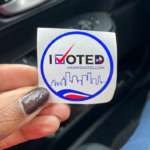 Harris County, Texas: Daryl Blackburn, a former data analyst with the now-defunct Harris County Elections Administration Office agreed to a pretrial intervention program to have six felony charges dismissed. Blackburn was placed on a six-month pretrial intervention program Tuesday, according to the Harris County District Attorney’s office. He will be required to pay $20,000 in restitution, complete eight hours of community service and report to the probation department. If he completes these requirements, the DA’s office said the charges will be dismissed on Oct. 7. The DA’s office said Blackburn did not admit any guilt as part of the intervention program. Blackburn’s attorney did not comment on the matter when contacted Tuesday. Blackburn was charged with six felonies last year — one count of theft and five counts of tampering with government documents. The charges came following an investigation by then-District Attorney Kim Ogg and the Texas Rangers into alleged wrongdoing during the 2022 general election held in Harris County. According to court documents, Blackburn was in charge of allocating equipment and supplies, including paper ballots, to polling locations throughout the county. While the investigation found no evidence that Blackburn or anyone else intended to suppress voter turnout or affect the outcome of the election, investigators said he had been working a second full-time job while being employed at the elections administration office.
Harris County, Texas: Daryl Blackburn, a former data analyst with the now-defunct Harris County Elections Administration Office agreed to a pretrial intervention program to have six felony charges dismissed. Blackburn was placed on a six-month pretrial intervention program Tuesday, according to the Harris County District Attorney’s office. He will be required to pay $20,000 in restitution, complete eight hours of community service and report to the probation department. If he completes these requirements, the DA’s office said the charges will be dismissed on Oct. 7. The DA’s office said Blackburn did not admit any guilt as part of the intervention program. Blackburn’s attorney did not comment on the matter when contacted Tuesday. Blackburn was charged with six felonies last year — one count of theft and five counts of tampering with government documents. The charges came following an investigation by then-District Attorney Kim Ogg and the Texas Rangers into alleged wrongdoing during the 2022 general election held in Harris County. According to court documents, Blackburn was in charge of allocating equipment and supplies, including paper ballots, to polling locations throughout the county. While the investigation found no evidence that Blackburn or anyone else intended to suppress voter turnout or affect the outcome of the election, investigators said he had been working a second full-time job while being employed at the elections administration office.
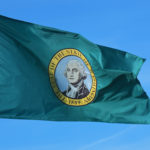 Washington: The Washington and Oregon attorneys general sued the Trump administration over its executive order on elections that seeks to withhold funding unless states comply with dramatic rule changes. “The order makes it harder to vote, erodes public confidence in our elections and makes it more expensive for states to administer our systems,” Washington Attorney General Nick Brown said, “and most alarming, it would disenfranchise hundreds of thousands of Washington residents.” The order tells the bipartisan and independent Election Assistance Commission to require documentation of U.S. citizenship, like a passport or enhanced driver’s license, as a prerequisite to registering to vote in federal elections. Washington state law mandates that people attest to their citizenship to register to vote. Statute also requires state and local election officials to regularly review voter rolls to identify people not eligible to vote. In a press conference, Washington Secretary of State Steve Hobbs called the idea for the review “foolhardy and ridiculous.” The lawsuit, filed in U.S. District Court in Seattle, argues Trump’s order violates the U.S. Constitution, which says states will decide election mechanics, and unconstitutionally infringes on the right to vote. “The president has no authority to set rules for how states conduct their elections,” said Brown. “Democrats and Republicans in our state have worked together to protect and expand participation in our democracy, and Washington has a robust, safe and secure, voting system.”
Washington: The Washington and Oregon attorneys general sued the Trump administration over its executive order on elections that seeks to withhold funding unless states comply with dramatic rule changes. “The order makes it harder to vote, erodes public confidence in our elections and makes it more expensive for states to administer our systems,” Washington Attorney General Nick Brown said, “and most alarming, it would disenfranchise hundreds of thousands of Washington residents.” The order tells the bipartisan and independent Election Assistance Commission to require documentation of U.S. citizenship, like a passport or enhanced driver’s license, as a prerequisite to registering to vote in federal elections. Washington state law mandates that people attest to their citizenship to register to vote. Statute also requires state and local election officials to regularly review voter rolls to identify people not eligible to vote. In a press conference, Washington Secretary of State Steve Hobbs called the idea for the review “foolhardy and ridiculous.” The lawsuit, filed in U.S. District Court in Seattle, argues Trump’s order violates the U.S. Constitution, which says states will decide election mechanics, and unconstitutionally infringes on the right to vote. “The president has no authority to set rules for how states conduct their elections,” said Brown. “Democrats and Republicans in our state have worked together to protect and expand participation in our democracy, and Washington has a robust, safe and secure, voting system.”
 West Virginia: Two women have been indicted by a grand jury for criminal violations relating to the Primary Election of 2022. Jan Hite King and Kimberly Maynard have each been charged with one count of false swearing, one count of aiding and abetting the commission of false swearing, and one count of conspiracy to commit false swearing in Cabell County Circuit Court. According to the indictment handed down by the Cabell County grand jury, King and Maynard are accused of knowingly submitting false information on their Certificates of Announcement when declaring their candidacy. The indictment alleges that on or about February 3, 2022, King and Maynard, in an attempt to seek election to the Cabell County Commission, completed sworn declarations falsely stating they were residents of magisterial districts in which they did not actually live.
West Virginia: Two women have been indicted by a grand jury for criminal violations relating to the Primary Election of 2022. Jan Hite King and Kimberly Maynard have each been charged with one count of false swearing, one count of aiding and abetting the commission of false swearing, and one count of conspiracy to commit false swearing in Cabell County Circuit Court. According to the indictment handed down by the Cabell County grand jury, King and Maynard are accused of knowingly submitting false information on their Certificates of Announcement when declaring their candidacy. The indictment alleges that on or about February 3, 2022, King and Maynard, in an attempt to seek election to the Cabell County Commission, completed sworn declarations falsely stating they were residents of magisterial districts in which they did not actually live.
Opinions This Week
National Opinions: SAVE Act, II, III, IV, V | Executive order, II | Voting Rights Act
Arizona: Executive order
Illinois: Vote by mail
Maine: Voting rights
Mississippi: Democracy
North Carolina: Supreme court race | Voting rights | Overturning elections
Pennsylvania: Election security funding | Vote by mail
Texas: SAVE Act
Washington: Voting rights
Upcoming Events
Can We Save Democracy?: In a recent article, Steven Levitsky, Professor of Government at Harvard University and co-author of How Democracies Die, predicts that “U.S. democracy will likely break down during the second Trump administration, in the sense that it will cease to meet standard criteria for liberal democracy: full adult suffrage, free and fair elections, and broad protection of civil liberties.” In this online event, two leaders of national pro-democracy organizations will explain what they are doing to prove him wrong. Maya Wiley, President and CEO of the Leadership Conference on Civil and Human Rights, and Virginia Kase Solomón, President and CEO of Common Cause, will join Levitsky in a discussion about what the strategies of pro-democracy movements are in this moment, whether they will be enough, and what else can be done. Archon Fung, Director of the Ash Center for Democratic Governance and Innovation, will moderate. When: April 16 4pm to 5pm Eastern. Where: Online
2025 EAC Local Leadership Council Annual Meeting: The U.S. Election Assistance Commission (EAC)’s Local Leadership Council (LLC) will host an in-person public meeting on April 21 – 22, 2025, at the Grand Bohemian Charlotte hotel in Charlotte, North Carolina. During the meeting, members will conduct regular business and discuss EAC updates and upcoming programs. The LLC consists of 100 members. The EAC appoints two members from each state after soliciting nominations from each state’s election official professional association. If you are a member of the public and you are interested in attending, please register below. The EAC will only accept written comments and questions from members of the public. If you would like to participate, please email clearinghouse@eac.gov with your full name and question or comment no later than 5:00 p.m. ET on April 18, 2025. When: April 21-22. Where: Online
Election Center April Special Workshop: The Election Center April Special Workshop will be held in Pittsburgh. The conference will run April 23-25 and CERA courses will be offered April 26 and 27. The CERA courses offered will be: Course 9 (History III, 1965 to present); Course 10 (Constitutional Law of Elections); and Renewal Course 38 (Leadership in Election Administration). When: April 23-27. Where: Pittsburgh, Pennsylvania.
2025 EAC Standards Board Annual Meeting: The U.S. Election Assistance Commission (EAC)’s Standards Board will host an in-person public meeting on April 24-25, 2025 at the Grand Bohemian Charlotte hotel in Charlotte, North Carolina. During the meeting, members will conduct regular business and discuss EAC updates and upcoming programs. The Standards Board consists of 55 state election officials selected by their respective chief state election official and 55 local election officials selected through a process supervised by the chief state election official. If you are a member of the public and you are interested in attending, please register below. The EAC will only accept written comments and questions from members of the public. If you would like to participate, please email clearinghouse@eac.gov with your full name and question or comment no later than 5:00 p.m. ET on April 23, 2025. When: April 24-25. Where: Charlotte, North Carolina
How Did Misinformation and AI Deepfakes Impact the 2024 Election?: With rapid advances in the ability of artificial intelligence to produce text, images, and video, many were concerned about its potential impact on the 2024 election. Now that the dust has settled, join R Street for an engaging conversation about whether deepfakes and misinformation impacted the 2024 election and how we can apply lessons learned to future elections. When: April 29 1pm to 2pm Eastern. Where: Online.
2025 EAC Board of Advisors Annual Meeting: The U.S. Election Assistance Commission (EAC)’s Board of Advisors will host an in-person public meeting on May 5 – 6, 2025, in the agency’s hearing room. During the meeting, members will conduct regular business and discuss EAC updates and upcoming programs. The Board of Advisors is a 35-member board composed of representatives from various EAC stakeholder associations, federal government agencies, and Congress. If you are a member of the public and you are interested in attending, please register below. The EAC will only accept written comments and questions from members of the public. If you would like to participate, please email clearinghouse@eac.gov with your full name and question or comment no later than 5:00 p.m. ET on May 2, 2025. When: May 5-6. Where: Washington, DC.
iGO Summer Conference: The International Association of Government Officials will hold their summer conference in Kansas City, Missouri from June 20-24. Please refer to the iGO website for more information and to register for the event.
NASED Summer Conference: The National Association of State Election Directors will hold its summer conference in Oklahoma from July 22-24. Please refer to the NASED website for more information when it becomes available.
NASS Summer Conference: The National Association of Secretaries of State will hold its summer conference in Biloxi, Mississippi from August 4-7. Please refer to the NASS website for more information when it becomes available.
Election Center Annual Conference: The Election Center Annual Conference will be held in Salt Lake City. The conference will run August 20-22 and CERA courses will be offered August 23 and 24. The CERA courses offered will be: Course 5 (Ethics); Course 6 (Communications & Public Relations); and Two renewal courses to be announced. When: August 20 to 24. Where: Salt Lake City.
Job Postings This Week
electionlineWeekly publishes election administration job postings each week as a free service to our readers. To have your job listed in the newsletter, please send a copy of the job description, including a web link to mmoretti@electionline.org. Job postings must be received by 5pm on Wednesday in order to appear in the Thursday newsletter. Listings will run for three weeks or till the deadline listed in the posting.
Assistant Elections Director, Connecticut Secretary of State’s Office– The Legislation and Election Administration Division (LEAD) administers, interprets and implements all state and federal laws pertaining to elections, primaries, nominating procedures, and the acquisition and exercise of voting rights. The Division encourages and monitors the implementation of the National Voter Registration Act and other voter registration efforts in Connecticut. In addition, the division is the official keeper of all acts, orders, grants, and resolutions of the General Assembly, receives and maintains legislation, regulations and a wide range of other public documents as required by statute, and administers Connecticut’s notary public program. Assist the Division Director in managing all aspects of LEAD’s projects, programs, and staff; Assign and provide oversight for all election and voter registration functions; Supervise four (4) Staff Attorneys, six (6) Elections Officers, and two (2) administrative support staff members; Ensure compliance with registration and election laws; Coordinate the training of local election officials; Draft legislative proposals and regulations; Monitor changes in federal election law, funding sources, and grant opportunities; Serve as a liaison between the agency and registrars of voters, town clerks, municipal governments, other state agencies, other state governments, and the federal government; Attend regional and statewide meetings of town clerks and registrars organizations; Receive and respond to public inquiries, requests for assistance, and complaints regarding areas of responsibility; Work with the IT Director to strengthen Connecticut’s cybersecurity infrastructure, manage existing technology, and implement new technology for election systems, accessible voting systems, online voter registration, motor-voter registration, and other agency programs; Monitor available Help America Vote Act (HAVA) funds or other funding sources and grant opportunities; Support the Division Director as needed for responsibilities associated with the National Association of Election Directors (NASED), the Electronic Voter Registration Center (ERIC), and other national boards as requested by the Secretary and Division Director. Salary: $102,653 – $139,958/year. Deadline: April 23. Application: For the complete job listing and to apply, click here.
Bilingual Constituent Services Specialist, Denver Elections– The Denver Elections Division is currently seeking an eager and dedicated individual to serve as the Bilingual Constituent Services Specialist. This position will primarily support our gold standard of voter-centric services by acting as the Division’s liaison at the Elections Front Counter. The Bilingual Constituent Services Lead Assistant will also: Supervise, train, and ensure best practices for temporary staff (election judges) who work at the Front Counter during election cycles; Assist constituents in a friendly and professional manner, ensuring that information provided is accurate and accessible; Effectively communicate with constituents in both English and Spanish by phone, email, and SMS; Lead Early Voting activities at the Elections Division Main Office and coordinate out-of-county ballot transfers; Work cooperatively with internal and external stakeholders to provide information about election and campaign requirements to the public; Plan and implement election processes within the Constituent Services functional area, including establishing and maintaining correspondence and call center templates and other election training resources for temporary staff; Focus on continuous process improvements by tracking constituent services metrics and streamlining work processes; Process voter registration forms and tasks in SCORE, the statewide voter registration system, as assigned; Support voter registration and election activities at City and County of Denver jails, as assigned; Establish and maintain security procedures for mail handling at the Front Counter; Act as a subject matter expert in elections by continuously reviewing Colorado election laws to accurately inform and instruct the public and internal staff; Oversee the appropriate secure storage of voter registration documents and election materials at the Front Counter; Escalate any building security concerns to management and the security team. Salary: $24.71 – $37.07/hr. Deadline: April 28. Application: For the complete job listing and to apply, click here.
Candidate Services Coordinator, Seminole County, Florida – The Candidate Services Coordinator is a key member of the Supervisor of Elections Office, responsible for ensuring smooth administrative operations with a focus on candidate services and assists with accounting functions and payroll processing. This position requires attention to detail, organizational skills, and the ability to effectively handle multiple responsibilities while maintaining confidentiality and compliance with applicable laws and regulations. This position is responsible for managing the candidate qualifying process, serving as primary point of contact for candidates, maintaining accurate records related to candidate filings, financial disclosures, and other required documentation, and coordinating candidate workshops and providing training on election procedures and campaign finance rules. Salary: $36,000 – $46,000 Annually. Application: For the complete job listing and to apply, click here.
County Clerk, Lane County, Oregon– Lane County is seeking an experienced and dynamic leader to serve as County Clerk and Election & Recording Principal Manager, overseeing critical functions that uphold the integrity of our democratic processes and public records. This pivotal role leads a dedicated team committed to excellence, accuracy, and service to our community. As County Clerk, you will: Plan, organize, and conduct all federal, state, and local elections; Oversee voter registration, property tax appeals, and permanent real property records; Manage marriage licensing, domestic partnership registrations, and archived records; Ensure compliance with Federal, State, and Local laws governing elections and records; Lead a team of 14 full-time employees, ensuring exceptional service and operational efficiency; and Prepare and analyze data, manage budgets, and oversee technology solutions that support Clerk operations. This is a fast-paced, high-impact role where you’ll serve as Lane County’s Clerk and Election & Recording Principal Manager, working under the direction of the Director of Operations to deliver services that affect all residents. Why Lane County? Lane County, the fourth most populous county in Oregon, offers a rich and diverse landscape stretching from the Pacific Ocean to the Cascade Mountains. Our county seat, Eugene, is a vibrant community with ample opportunities for living, working, and recreation. We are proud to offer an excellent benefits package and the chance to make a meaningful impact in public service. Salary: $90,625.60 – $133,286.40 Annually. Application: For the complete job listing and to apply, click here.
Customer Support Consultant, Hart InterCivic– A Customer Support Center Consultant Level 1 (CSC 1) responds to requests for assistance from Hart InterCivic customers for all Hart InterCivic products. The CSC I’s primary responsibilities are to: Answer, resolve and route customer queries; Maintain professionalism and “customer first” approach in stressful situations; Acquire, demonstrate, and maintain depth of knowledge with all Hart products and product documentation to best support Hart customers; Acquire and maintain functional support-level knowledge of unique customer requirements and their implementation in Hart products; Provide data tracking, reporting, and analytics for CSC projects; Manage and maintain the security of Hart’s assets and customer information; and Serve as a backup/overflow resource Technical Services Workstation deployment and RMA management. Application: For the complete job listing and to apply, click here.
Deputy Recording Supervisor, Pinal County, Arizona–Have you considered investing in your community? Pinal County is a beautiful place that needs passionate people who want to help others and make a difference in their lives. Public service is a rewarding career choice; not only does it provide an immense sense purpose it also impacts you financially as well. We may not be the most competitive on salary, but we offer an amazing value to our employees including highly sought after retirement plans, paid sabbaticals every five years and extremely affordable benefit costs. In the long run, Pinal County is an excellent choice to fulfill your heart and soul along with funding your retirement! Job Summary: Performs professional and administrative work in planning, organizing and directing strategic and daily goals and objectives, operations and activities of the department. Supervise and direct the activities of the deputy recording clerks. Receives and reviews various official documents to determine appropriate actions based upon knowledge of statutory and regulatory requirements. Maintains the County Voter Registration of active and inactive voter listings. Processes and maintains record of official documents, voter registration forms and early ballots. Provide customer service, and perform historical research of various public records in the County Recorder’s Office (CRO). The employee is expected to exercise initiative, independent judgment and discretion. Application: For the complete job listing and to apply, click here.
Election Coordinator, Douglas County, Colorado– This is a professional level position responsible for providing collaborative leadership to coordinate, enhance, and support operations and programming within the Office of Clerk and Recorder Elections Division. The Coordinator is a supervisory position that leads and oversees work related to election planning with the Colorado Department of State and local jurisdictions for the conduct of elections. Conducts year-round elections operations in compliance with State and Federal law, collaborates with the Elections team to prepare for upcoming election cycles, and assists with the administration of elections functions as assigned. Responsible for coordination of election workers. In the absence of management, assumes responsibility for front-line functions associated with voter services. This is a highly visible position requiring leadership, organizational, and communication skills. Salary: $62,092 – 93,138. Deadline: April 20. Application: For the complete job listing and to apply, please click here.
Election Specialist, Candidate Services, Palm Beach County, Florida– This position is responsible for the management and execution of services provided to candidates, political committees, electioneering communication organizations, political parties, community development districts, and special taxing districts. This includes establishing and maintaining an organized system for managing the required forms and records associated with filing and qualifying for office, candidate petitions, campaign finance reporting, financial disclosures, initiative petitions, and other related activities. Candidate Services staff must be organized and personable with a great attitude, be able to work well in a team environment, and meet deadlines under pressure. Excellent work ethic, including consistent performance, integrity, reliability, and attendance, is a must. Must be detail-oriented, be able to handle simultaneous projects, and be a self-starter. Salary: $21.63 – $24.04. Application: For the complete job listing and to apply, click here.
Elections Logistics Technician, Bartow County, Georgia–This position performs technical, clerical, and logistical duties relating to voter registration, the selection and preparation of various polling places, as well as the deployment and return of the equipment and supplies to those polling places.Completes and maintains electrical power and ADA compliance diagrams for all current polling places; assesses and diagrams all potential new polling places for the same criteria. Alerts polling places to upcoming elections and otherwise schedules facilities as required. Coordinates voting system deployment and instructs temporary employees on correct deployment procedures. Oversees and maintains supplies for all polling places; instructs temporary employees on correct procedures. Organizes the return and storage of ballots and supplies from polling places on election night; instructs temporary employees on correct procedures. Assists with the coordination of all election audits as required by Georgia law. Registers voters and updates current voter information. Processes and certifies absentee ballots. Scans, indexes, and files registration cards, campaign reports, voter applications and related documents. Sorts and processes mail. Assists the general public, candidates, board members, poll workers, vendors and the media with questions and concerns. Performs related duties as assigned. Salary: $36,608-$39,624 Annually. Application: For the complete job listing and to apply, click here.
Elections Registration Specialist, Virginia Department of Elections– The Elections and Registration Specialist ensures compliance with state and federal laws regarding the administration of elections. Collaborate with multiple internal and external partners to ensure the agency fosters an integrated approach to election administration policy and procedures. Provide appropriate guidance and support to Virginia’s election officials and Department of Elections (ELECT) staff via research, process supervision and liaison activities. Salary: Up to $67,000. Deadline: April 17. Application: For the complete job listing and to apply, click here.
Elections Specialist, Pinal County, Arizona– Perform a variety of paraprofessional and technical functions in the administration and support of the elections functions for Pinal County under general supervision. Work in this classification requires an individual to be able to perform the essential job functions satisfactorily. Reasonable accommodations may be made to enable individuals with disabilities to perform the primary classification functions herein described. Since every duty associated with this classification may not be described herein, employees may be required to perform duties not specifically spelled out in this classification description, but which may be reasonably considered to be incidental in the performing of their duties just as though they were actually written out in this description. Salary: $42,000 – $59,117 Annually. Application: For the complete job listing and to apply, click here.
Elections Systems Administrator, Arapahoe County, Colorado – The Election Systems Administrator performs leadership level administrative, and professional work in carrying out a comprehensive public facing service operation. This position specifically leads and supports all areas of ballot processing, ballot auditing and election technology maintenance. Salary: $64,293.06 – $96,439.98 Annually. Deadline: April 16. Application: For the complete job listing and to apply, click here.
IT Assistant Manager, Palm Beach County, Florida– The Assistant IT Manager plays a supportive role in the smooth operation of the IT department, ensuring that both the technical infrastructure and the team are aligned with the organization’s goals. This position involves collaborating closely with the Election Technology Director to oversee the implementation of technology solutions that meet the needs of the organization. The Assistant IT Manager helps maintain an efficient and effective IT environment. Oversee daily operations of the IT department, including help desk operations and performance, troubleshooting issues, and ensuring efficient workflow. Hold department meetings and provide weekly performance summary. Manage IT projects under the direction of the Election Technology Director, ensuring timely completion, budget requirements, and organizational needs. Enforce IT policies and procedures to ensure data security, network access, and system availability. Assist in the management of IT staff by developing skills, coaching, and communicating job expectations. Coordinate vendor renewals, assist with IT budget development, and manage grant applications. Evaluate and assist in maintaining the organization’s disaster recovery and business continuity plans for IT. Assist with IT Public Records requests research and fulfillment. Assist the Election Technology Director in all facets of IT operations. Lead projects and mentor team members. Application: For the complete job listing and to apply, click here.
Project Manager, HartIntercivic– Project Managers at Hart InterCivic are highly motivated “self-starters” who are enthusiastic about providing exceptional customer service. Working with other members of the Professional Services and Operations teams, the Project Manager directs activity, solves problems, and develops lasting and strong relationships with our customers. Hart InterCivic’s unique and industry-known culture of innovation, transparency, and customer-centric focus creates an environment where team members will continually grow and be challenged to develop their careers. Application: For the complete job listing and to apply, click here.
Physical Security Specialist, Palm Beach County, Florida– This position is responsible for administration of the physical security programs in a manner consistent with Supervisor of Elections Office policies, procedures, quality standards, and applicable local, state, and federal regulations. These programs include conducting facility security risk assessments, assisting with access control, monitoring alarms and CCTV systems, and providing security related training. Must be organized and personable with a great attitude, be able to work well in a team environment, and meet deadlines under pressure. Excellent work ethic, including consistent performance, integrity, reliability, and attendance, is a must. Candidate must be detail-oriented and understand the importance of security and safety for all. Must be available 24/7 365, be able to handle simultaneous projects, and be a self-starter. Application: For the complete job listing and to apply, click here.
Registrar of Voters, Sonoma County, California –Appointed by the Board of Supervisors, and reporting to the County Administrator/Executive, the Registrar of Voters provides leadership, administrative policy, and operational direction for the Registrar of Voters Department, including analyzing and interpreting legislation affecting the department and performing a variety of complex work in the planning and conducting of all Federal, State, and local elections. The Registrar of Voters is a critical leadership position, responsible for ensuring the electoral process in the County of Sonoma is conducted professionally and with the highest level of professional election standards, consistently demonstrating neutrality and non-partisan decision-making. This is a position of trust and confidence. Work is performed with a maximum amount of independent judgment and initiative. The Registrar of Voters has the primary responsibility for conducting Primary, General, and Special Elections within Sonoma County, and directing the operations of a department. This responsibility includes the successful execution of all components of the County’s election management process, including: registration of voters, poll worker coordination and training, vote center establishment aligned with any accessibility requirements, ballot creation, voting system security, ballot processing and tallying, the certification of election returns to the Secretary of State, and the provision of candidate services such as candidate filing and finance. Furthermore, this position has the sole responsibility for ensuring that election processes are in full compliance with County, State, and Federal legal requirements, communicating election results to the public, and providing information and responding to the media on election related matters. As the Department Head, it is anticipated the Registrar of Voters will directly supervise approximately 3-4 reports, including a Chief Deputy Registrar of Voters and administrative manager. The Department’s three Elections Managers are responsible for managing one or more of the Department’s program areas which include Voter Registration, Ballot Scanning and Adjudication, Poll Workers and Vote Center Supplies, Outreach Programs, Candidate and Campaign Services, Petitions, and Vote by Mail. Each area is responsible for overseeing important aspects of the election process to ensure smooth elections throughout the year. Salary: $195,036 – $237,072. Deadline: April 14. Application: For the complete job listing and to apply, click here.
Registrar Technician, Bartow County, Georgia– This position performs technical and clerical duties relating to the research, processing, and auditing of voter registration records, and related geographic data. Registers voters and updates current voter’s information. Assists with and otherwise troubleshoots issues with applications for voter registration and related documents. Utilizes GIS software to assist with maintenance of district lines, precinct lines, and polling place locations. Maintains and updates addresses in the statewide voter registration system’s address library. Processes and certifies absentee ballots. Assists the general public, candidates, board members, poll workers, vendors, and the media with questions and concerns. Answers telephone and greets visitors; provides information and assistance; refers to appropriate personnel. Scans, indexes, and files registration cards, campaign reports, voter applications, and related documents. Assists and coordinates audits of voter registration and credit for voting in the statewide voter registration system. Sorts and processes mail. Performs related duties as assigned. Salary: $36,608-$39,624 Annually. Application: For the complete job listing and to apply, click here.
Sales Director, SOE Software– The ideal candidate will be a combination of an experienced salesperson and someone familiar with US elections. This position will focus on the sales of voting modernization software within the US, targeting state and local governments. This position will report to the President of the company. This is a predominantly autonomous and challenging role that requires the right candidate to show leadership, ownership, enthusiasm, professionalism, and an entrepreneurial spirit toward business. This is a role that requires frequent travel within the region. The role would suit someone currently in a commercial role, selling software solutions/services into the US marketplace in the public sector. The ideal candidate will have strong state and local government contacts. The successful candidate will have considerable experience in building, growing, and managing a database of truly qualified prospects. Application: For the complete job listing and to apply, click here.
Senior Elections Supervisor, Placer County, California– The Placer County Clerk-Recorder-Elections Office has a current vacancy for a Senior Elections Supervisor. The Office is looking for someone with experience in the development, supervision, and administration of elections programs. The ideal candidate will have supervised in an elections office or similar agency that emphasizes cooperation, accountability and transparency and has the ability to communicate effectively with management, staff, other county departments, jurisdictions and the voters of Placer County. To learn more about the Elections Division of the Clerk-Recorder-Elections Office please click here. In addition to the minimum education and experience, the ideal candidate will possess experience and vision in the following areas: State and federal election laws; Voting systems; General operating policies and functions of the California Secretary of State’s Office; Best practices and current trends in successful election administration, community education and outreach programs; Principles and techniques of effective employee supervision and development, training, management practices and public administration. Salary: $69,056.00 – $86,195.20/year. Application: For the complete job listing and to apply, click here.
Voter Services Clerk, Seminole County, Florida – The Voter Services Clerk serves as the primary customer service representative for the Seminole County Supervisor of Elections Office. This position is responsible for the accurate maintenance and entry of voter registration information, ensuring the integrity and confidentiality of voter data, and providing essential assistance to voters, including answering inquiries and processing voter-related documents. The Clerk will also be involved in various clerical and administrative tasks associated with voter services, ensuring compliance with applicable state and federal election laws. Responsibilities include processing new voter registrations, updates or changes to existing registrations, vote-by-mail ballot requests, and returns, as well as petition verifications and other voter record-related tasks, providing accurate voter registration and election information to the public in person, by phone, or via mail, in accordance with Florida state laws, regulations, and procedures, conducting research to resolve issues related to voter registration records, utilizing sources both within the voter database and external government websites or online resources, ensuring the accuracy and completeness of voter registration records by verifying information, validating signatures on candidate and initiative petitions, maintaining and update street maintenance files to ensure an up-to-date and accurate residential address database for Seminole County. Salary: $17 – $22 Hourly. Application: For the complete job listing and to apply, click here.
Marketplace
electionline provides no guarantees as to the quality of the items being sold and the accuracy of the information provided about the sale items in the Marketplace. Ads are provided directly by sellers and are not verified by electionline. If you have an ad for Marketplace, please email it to: mmoretti@electionline.org